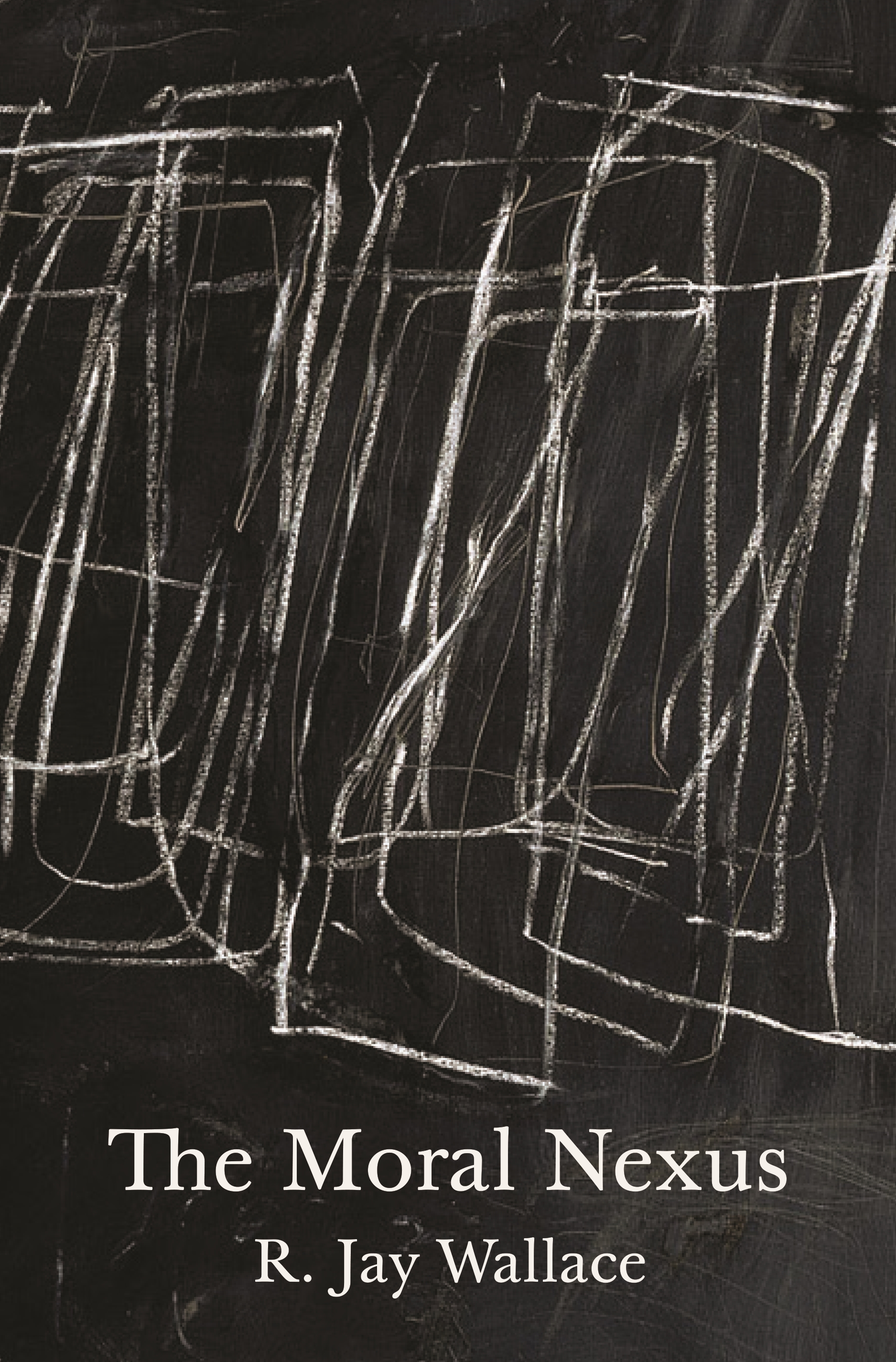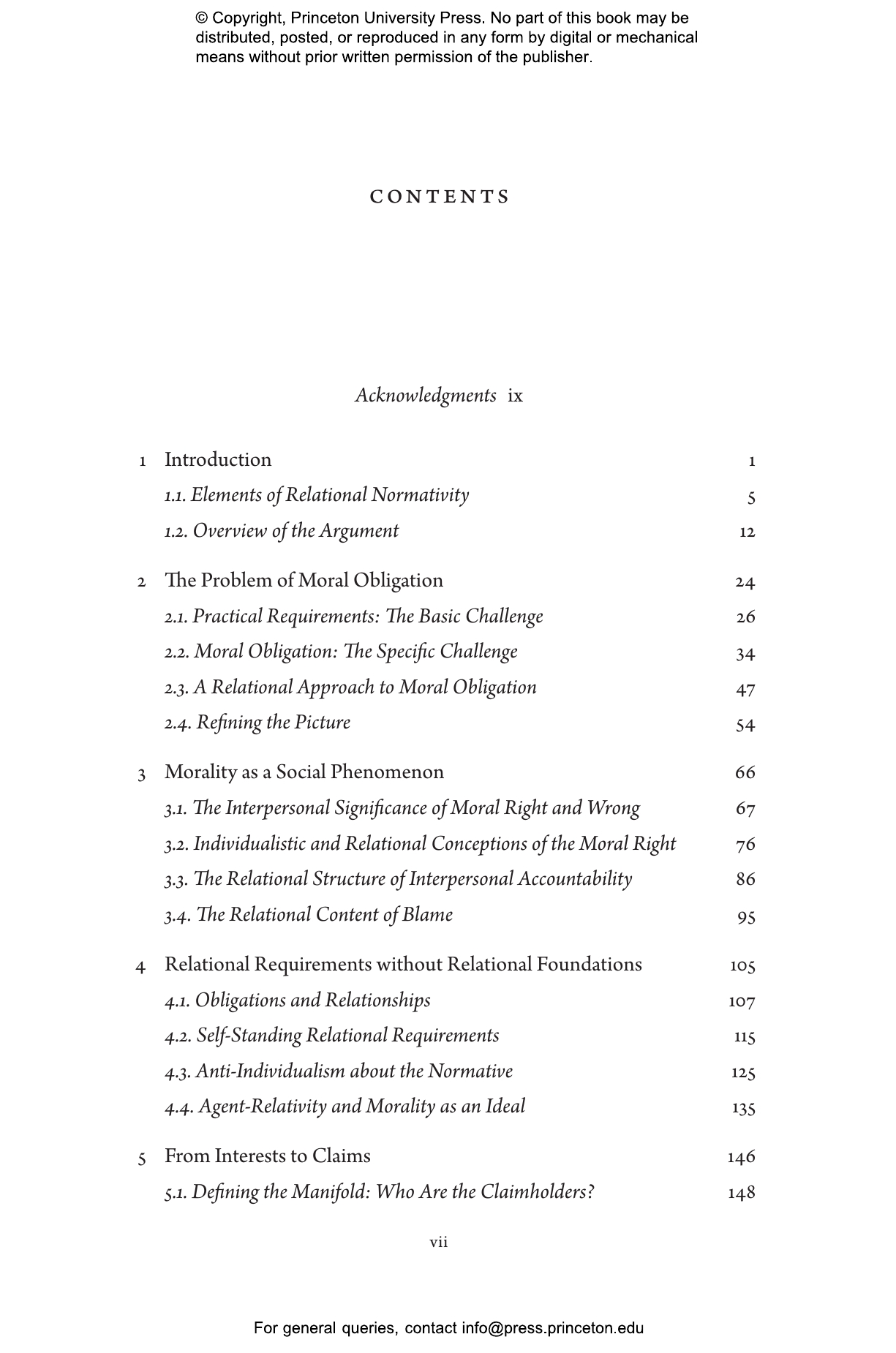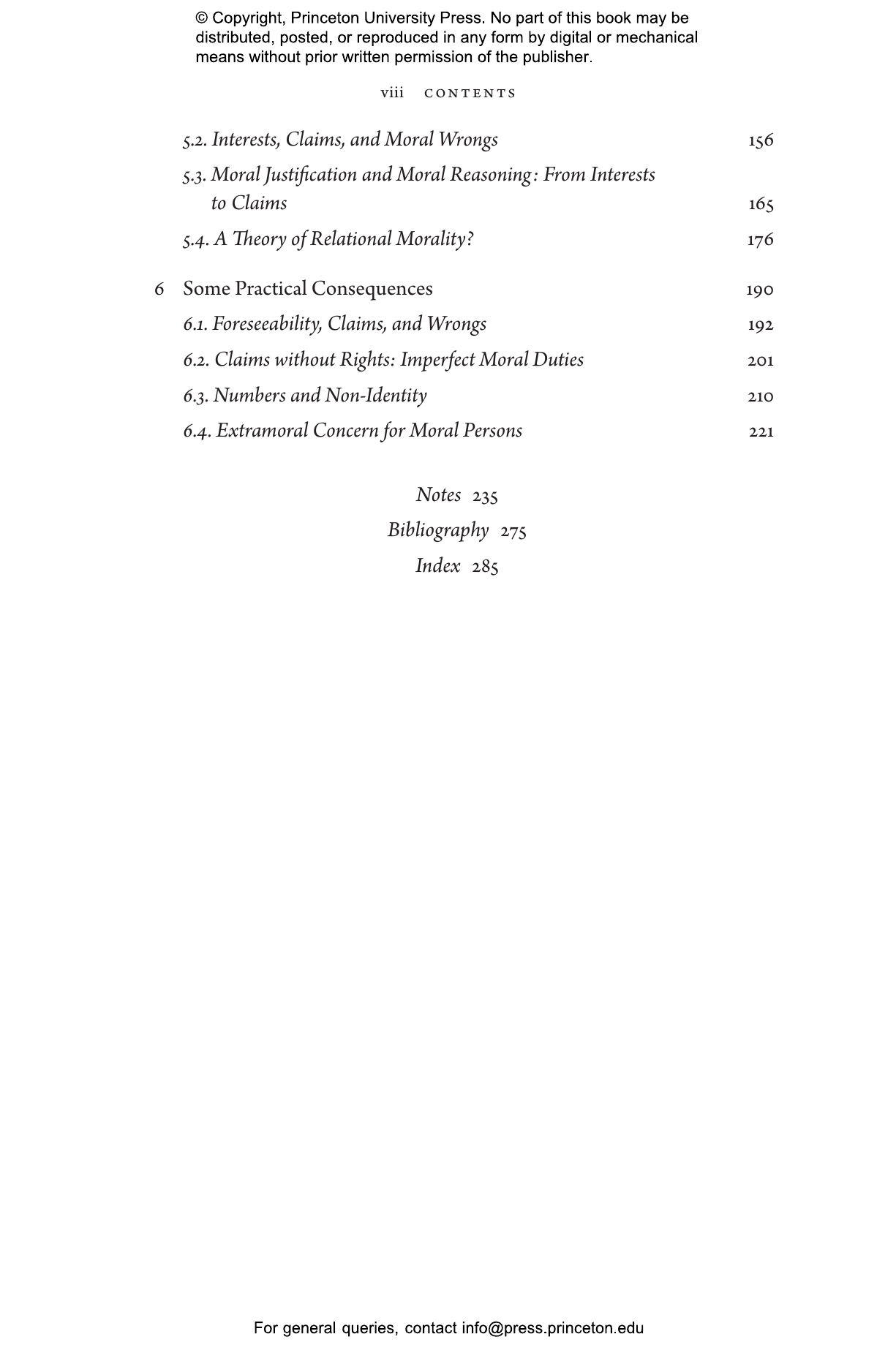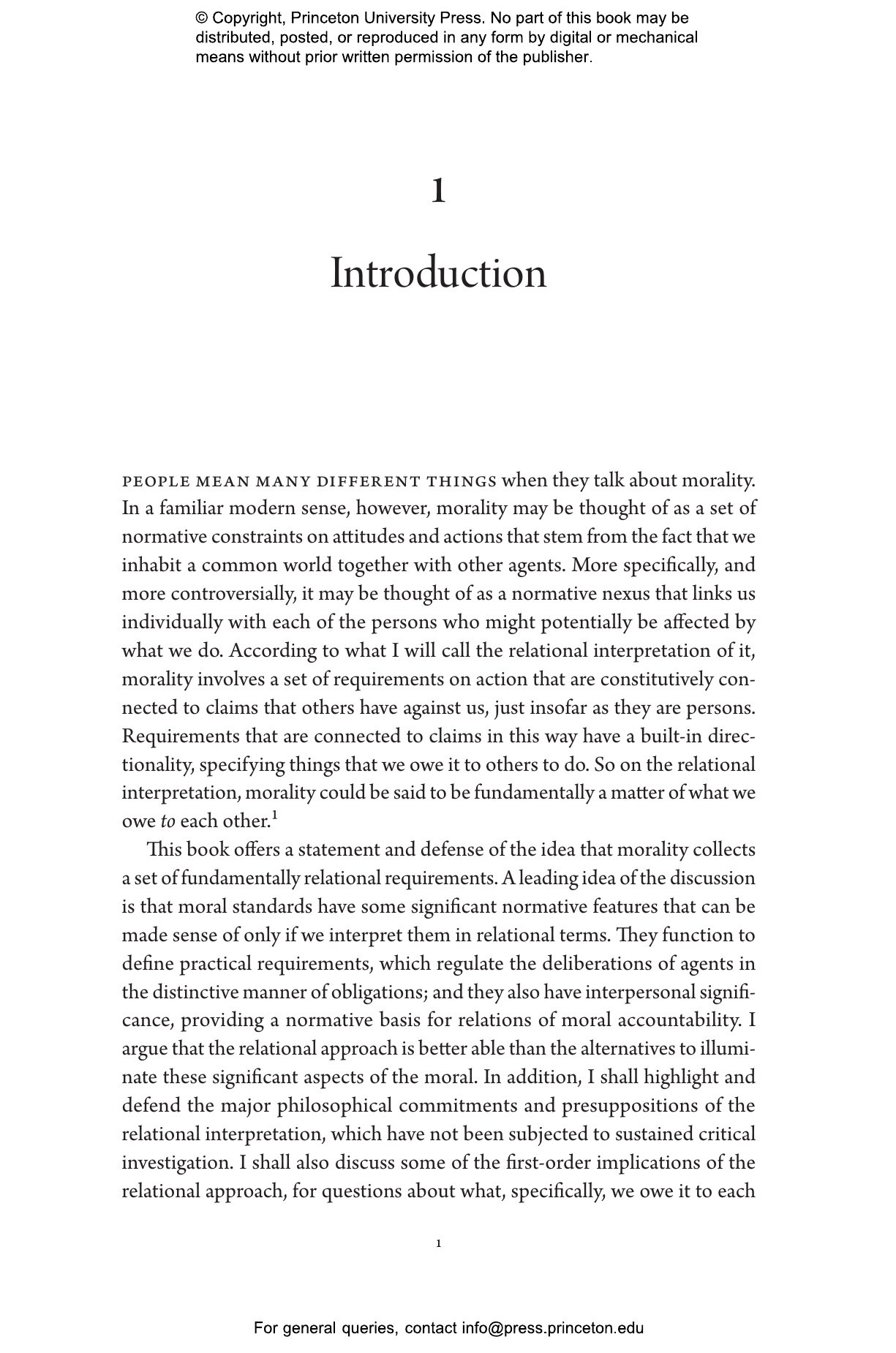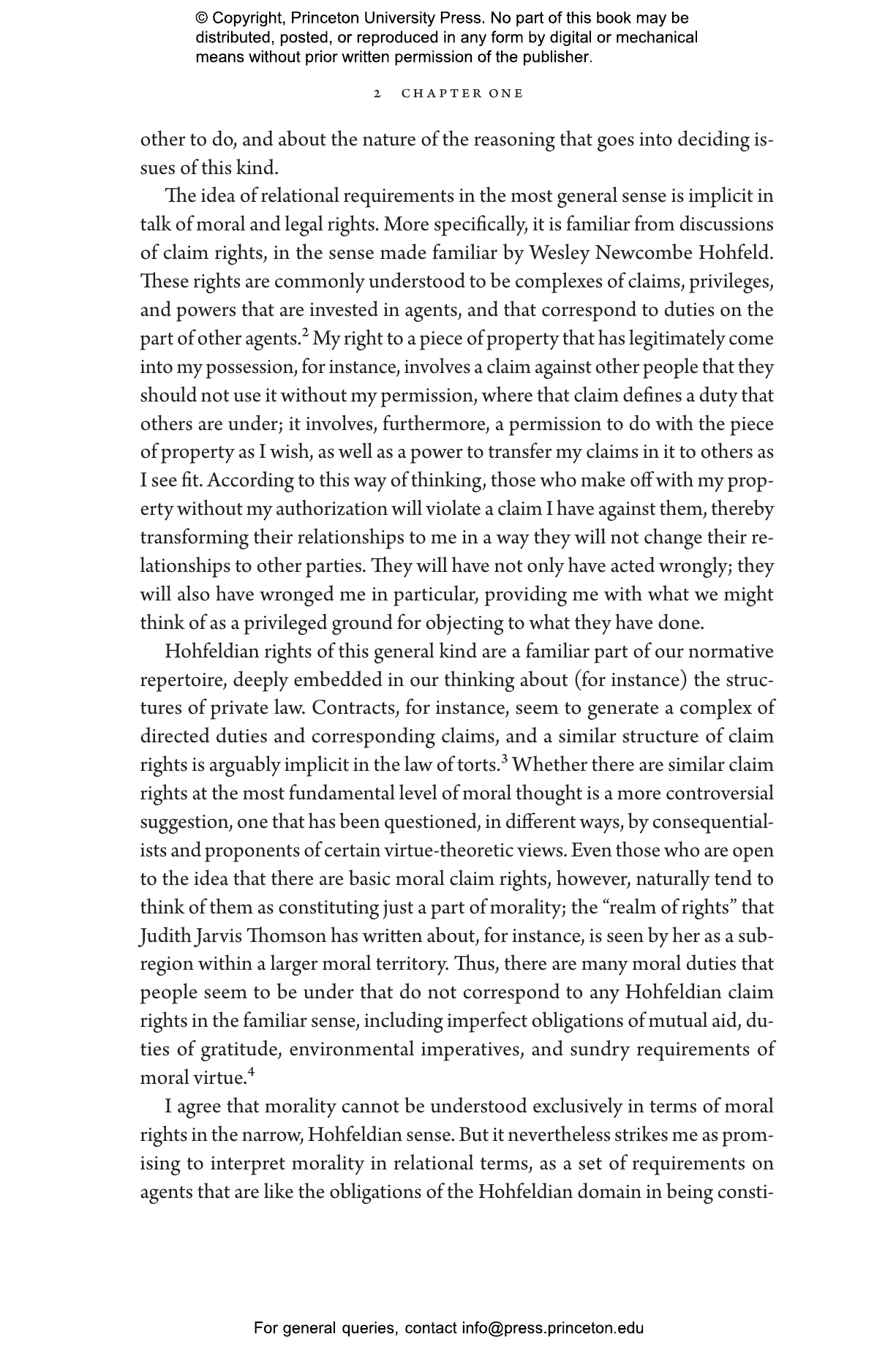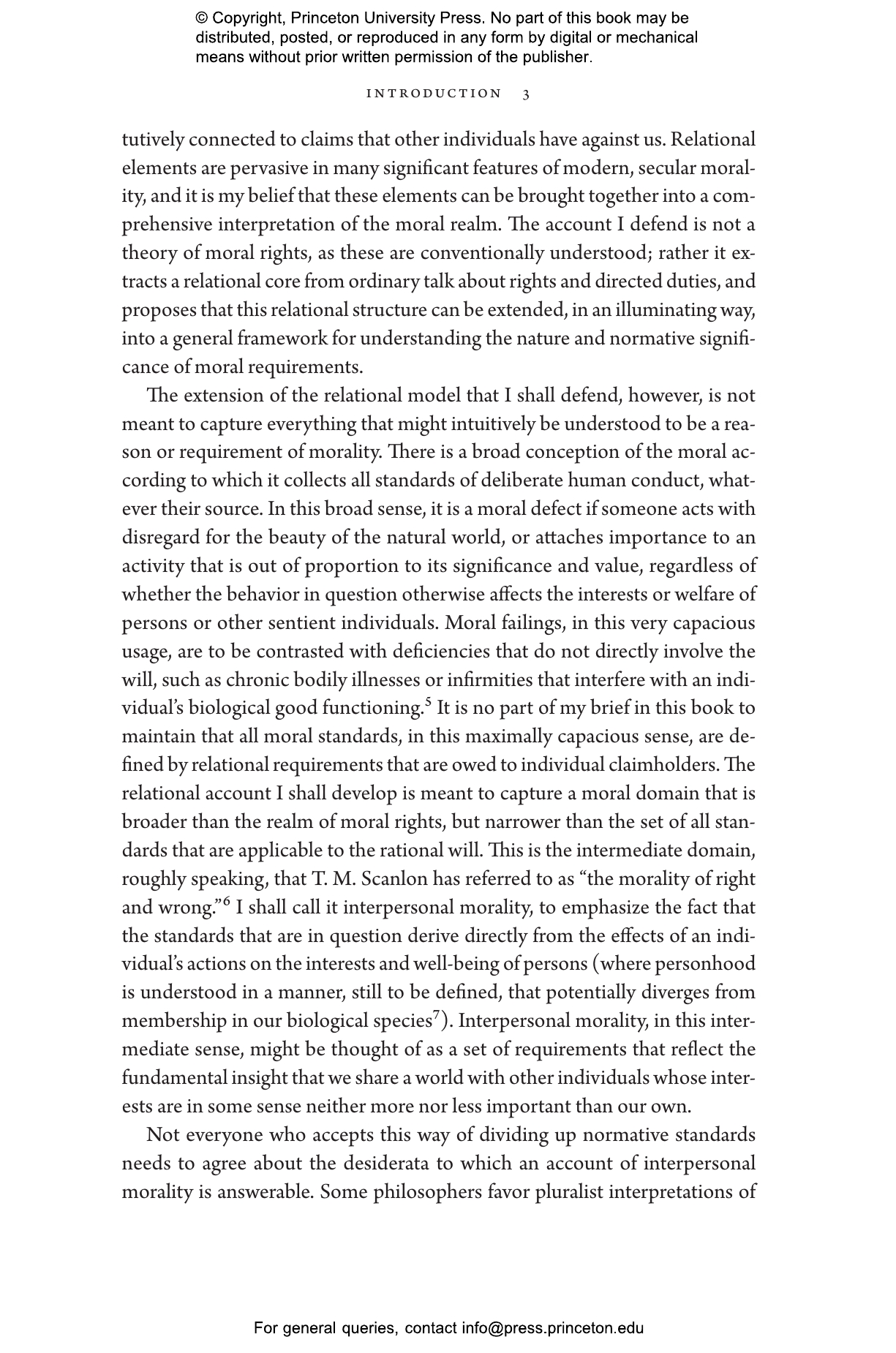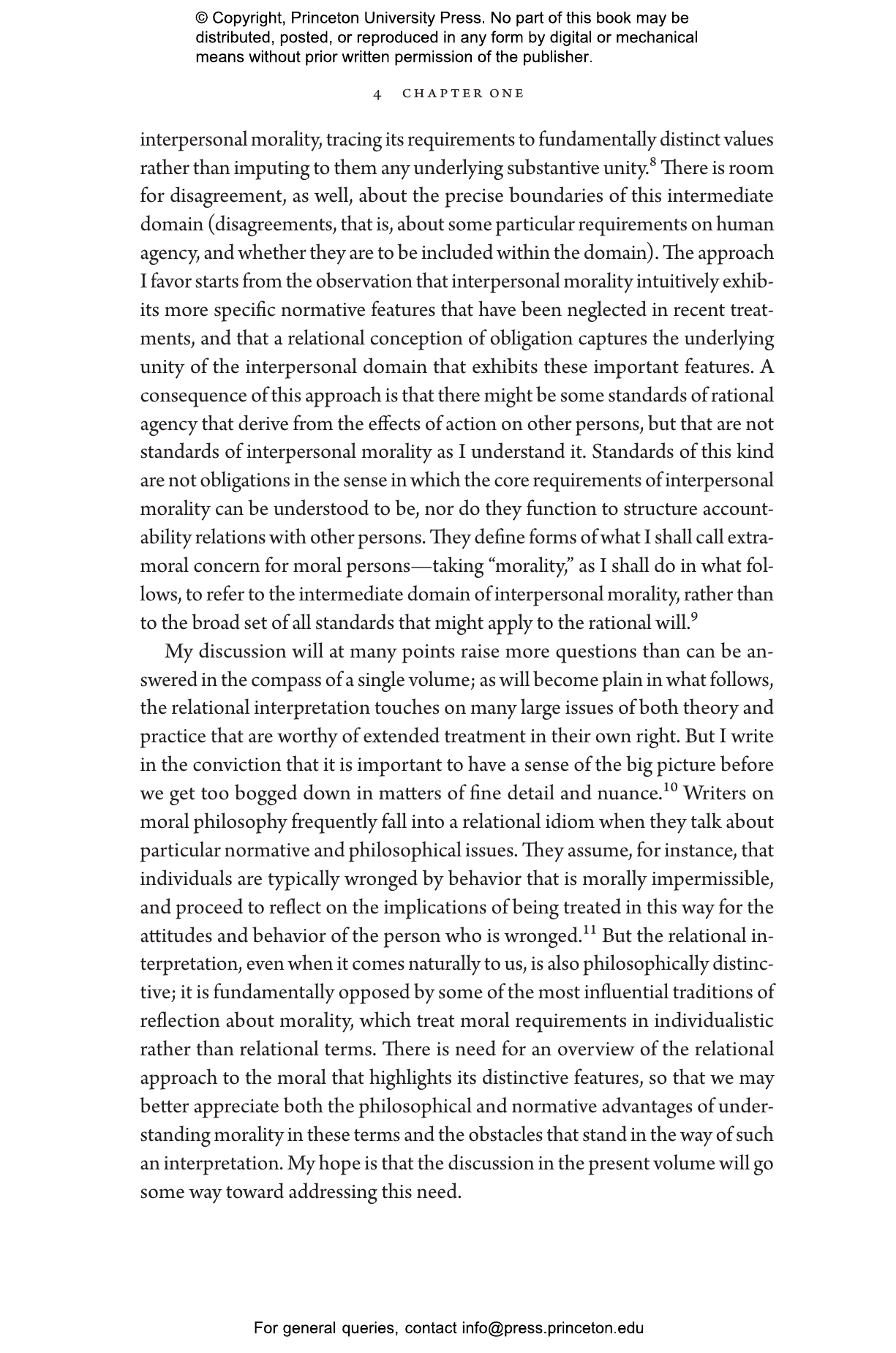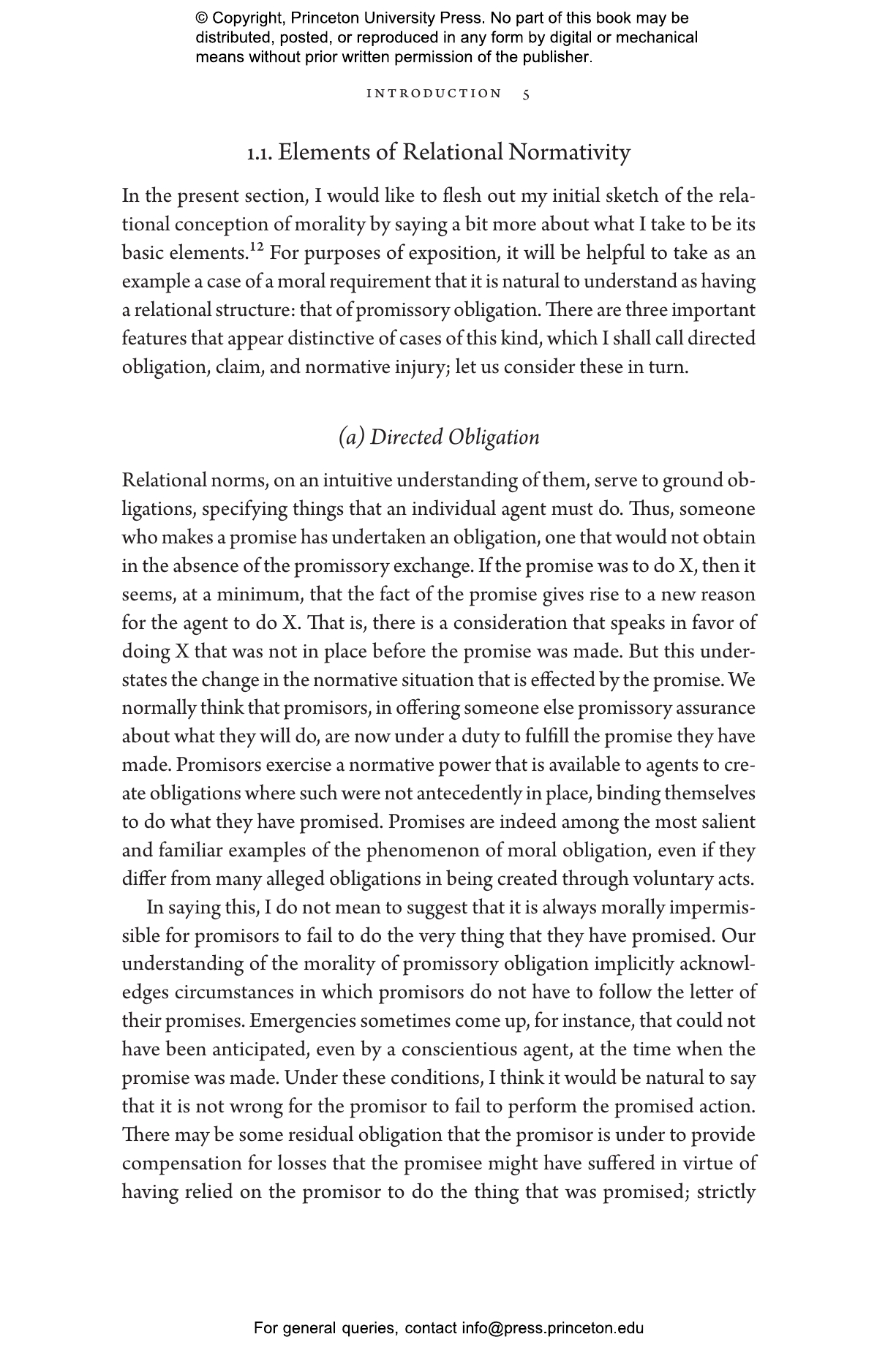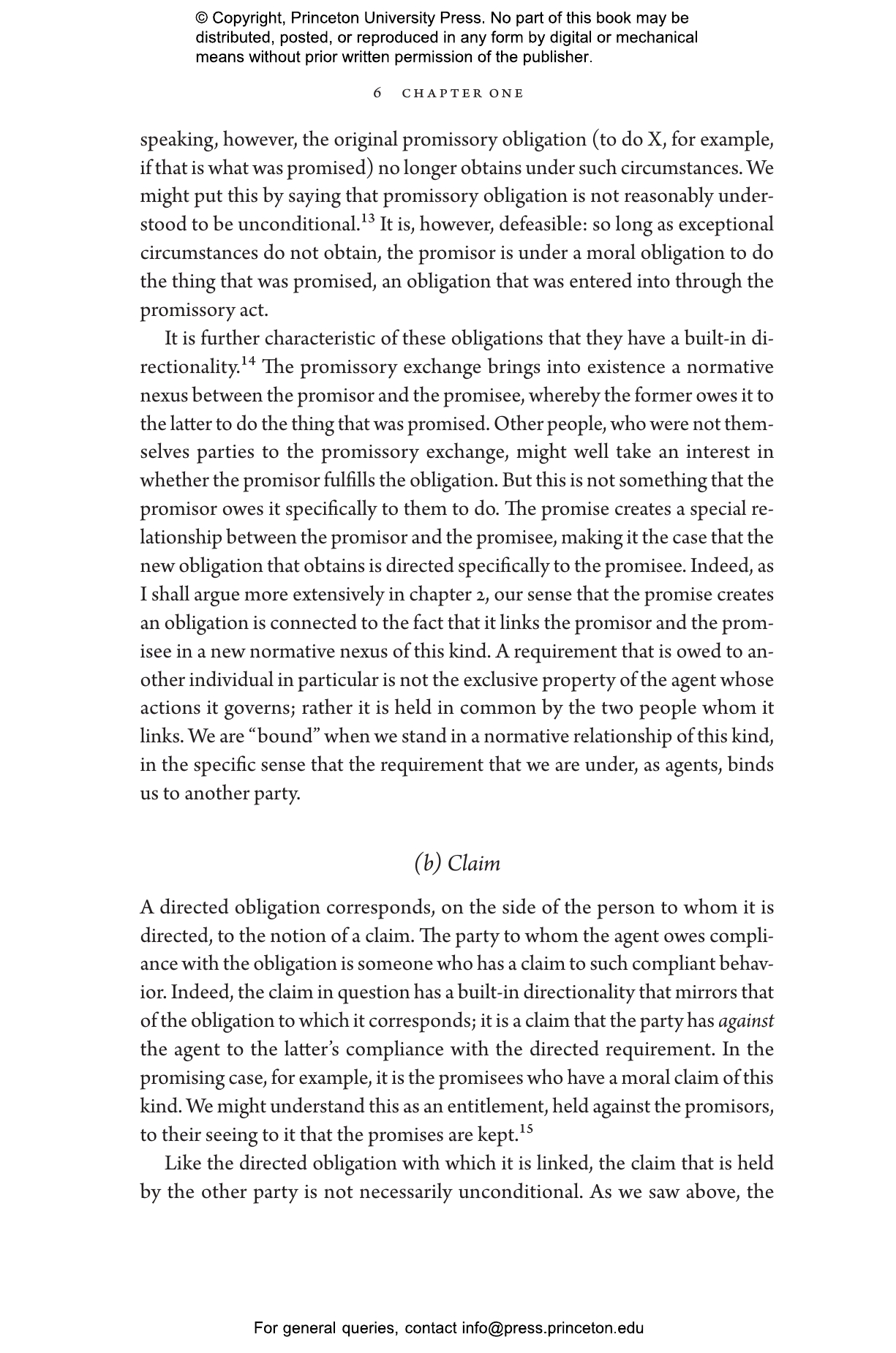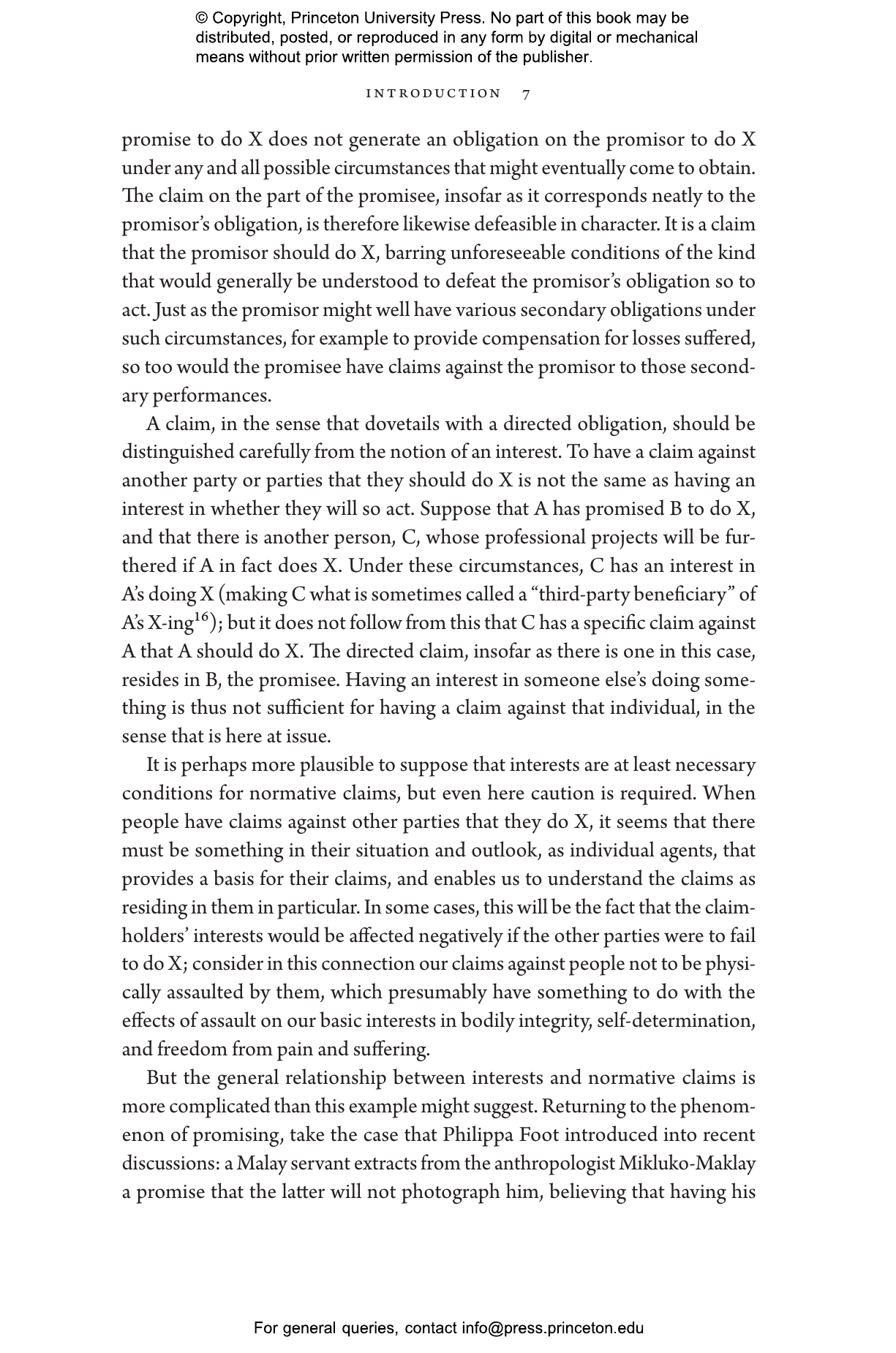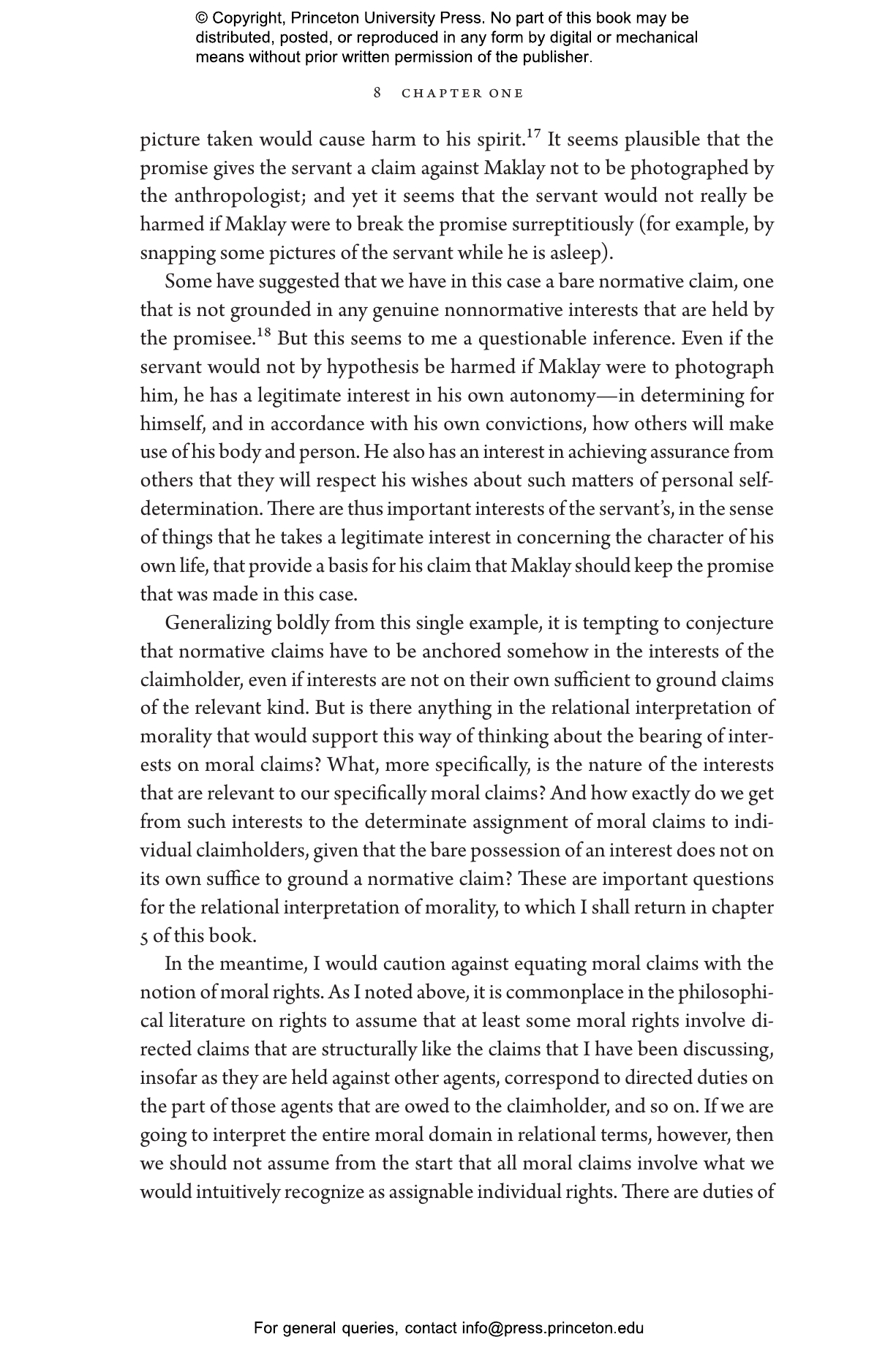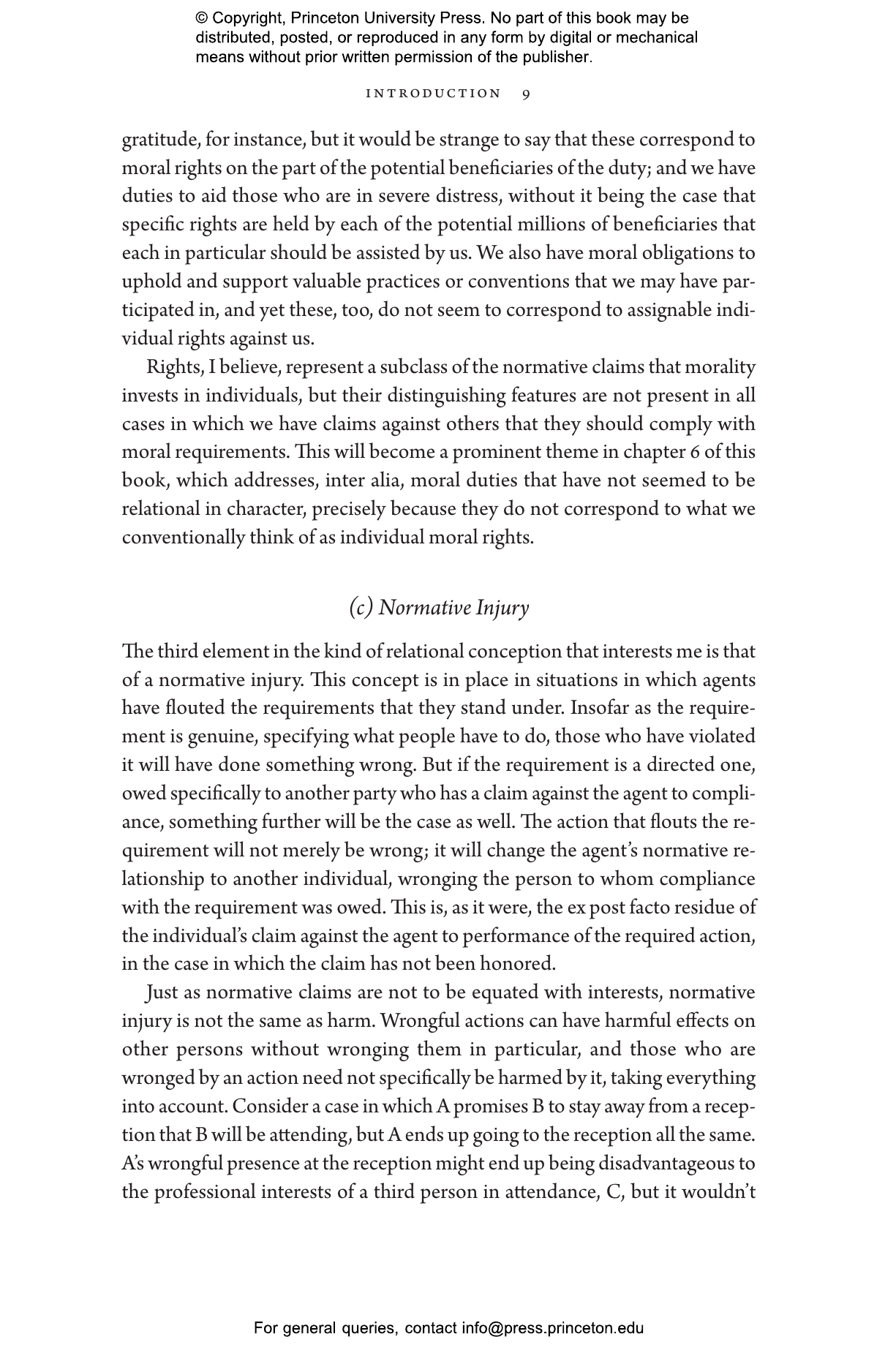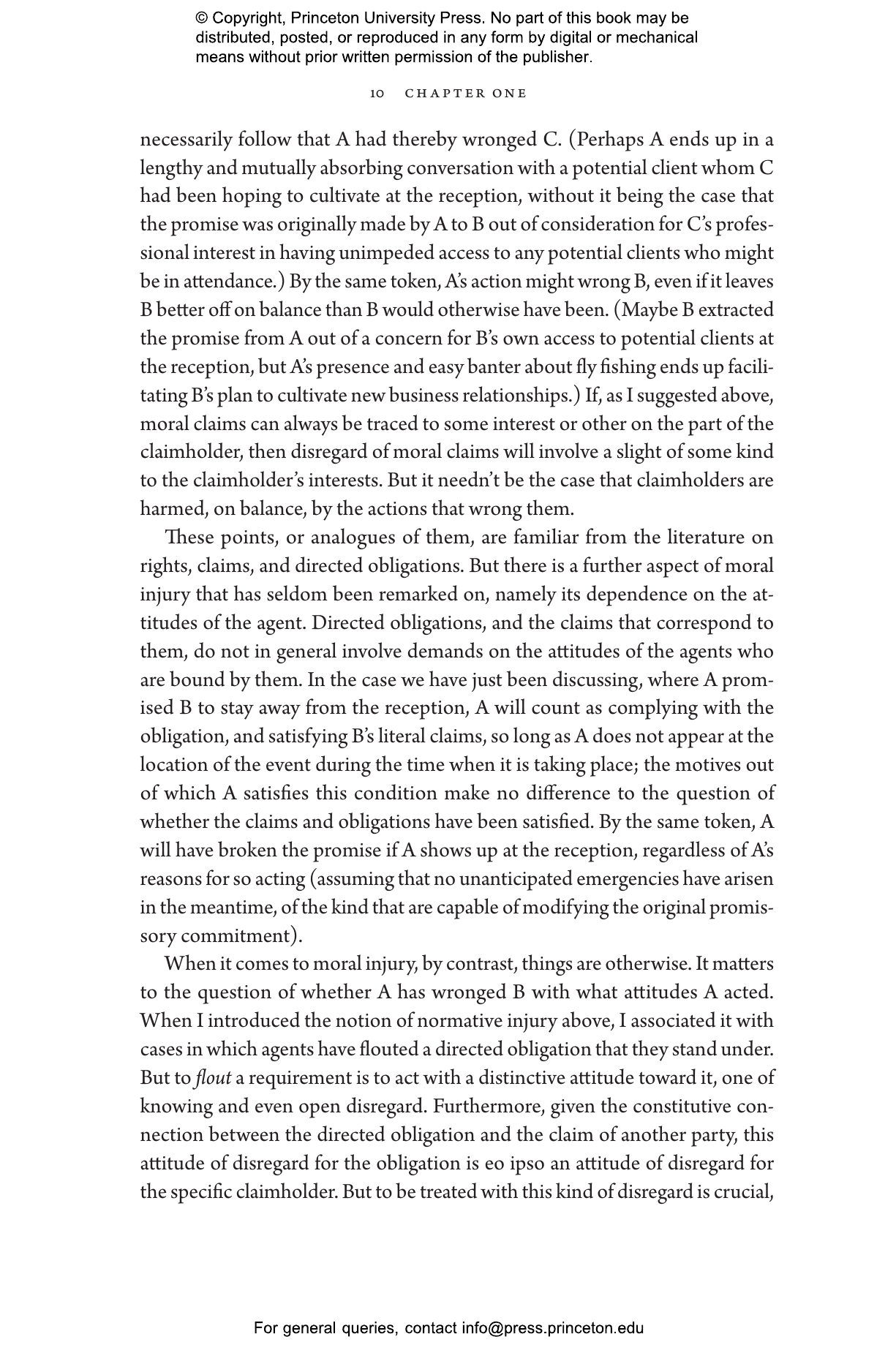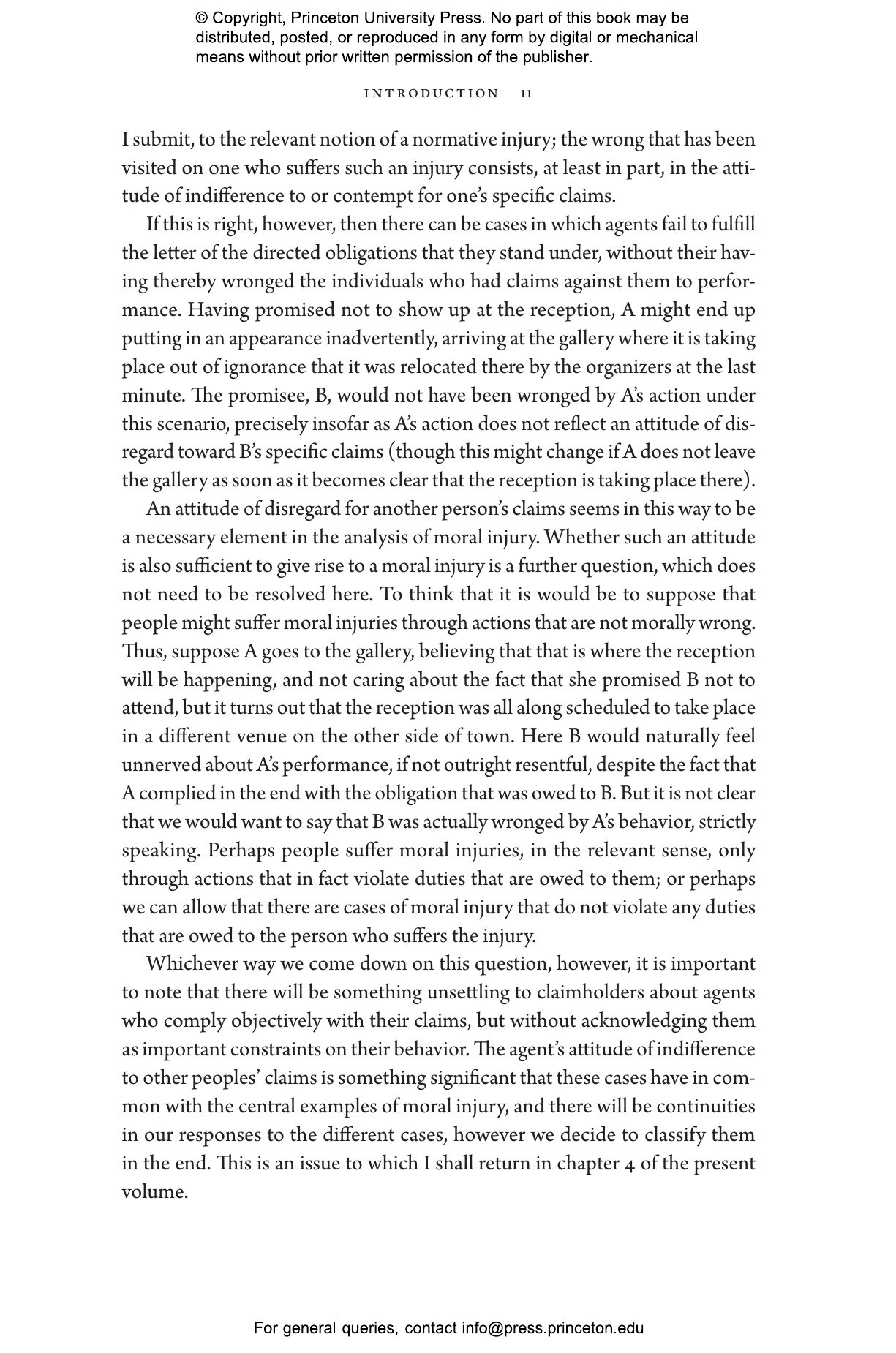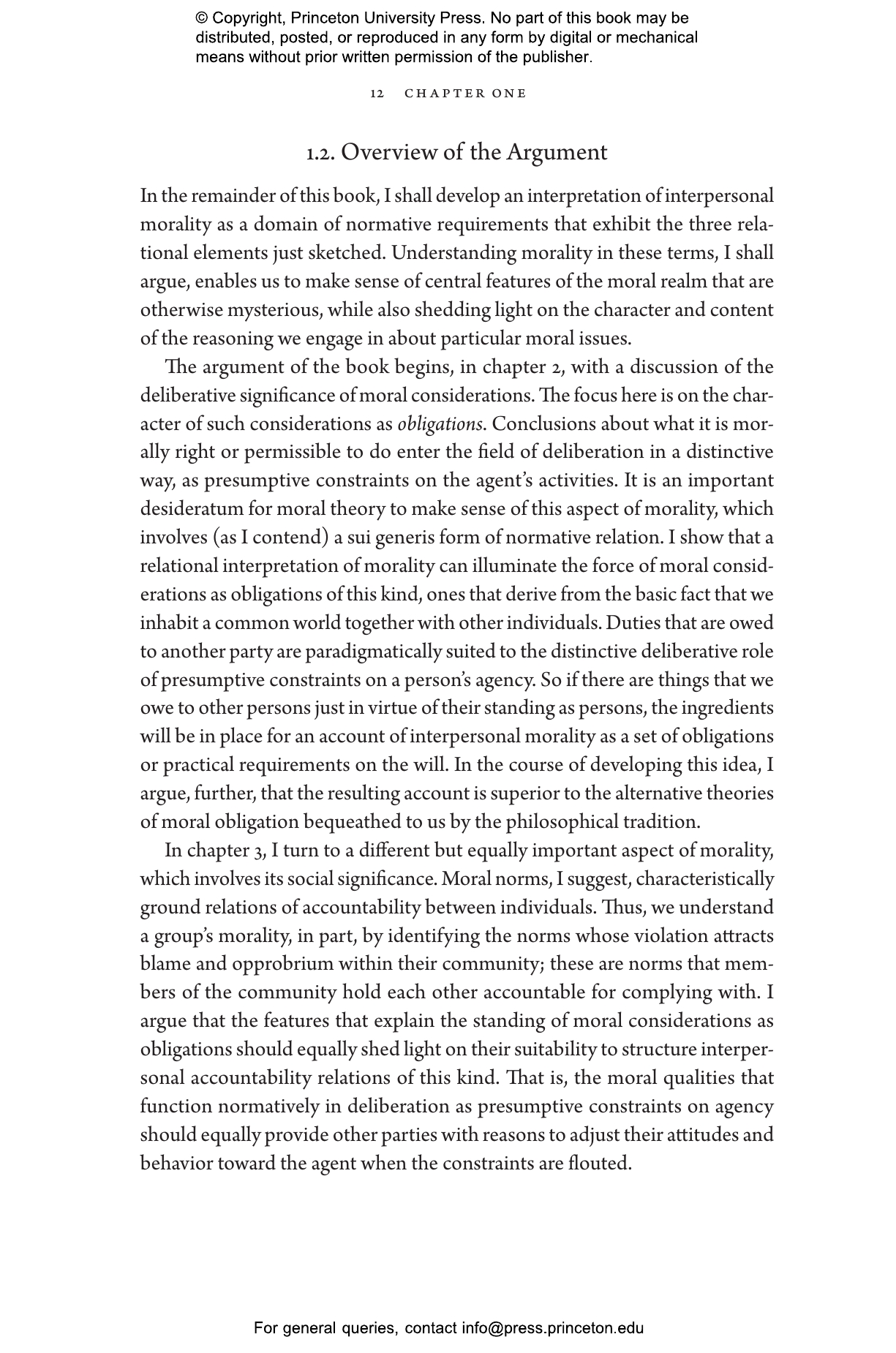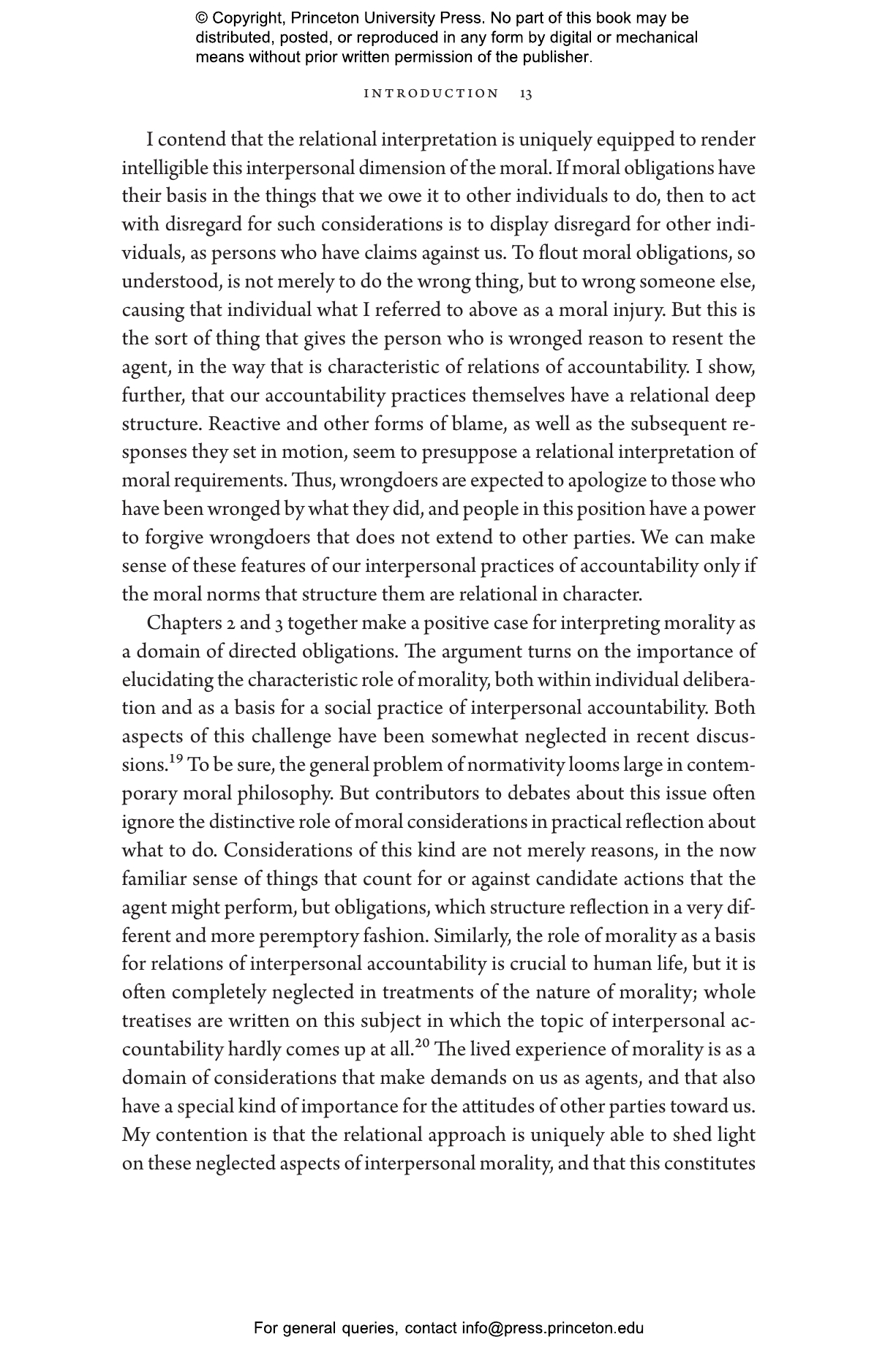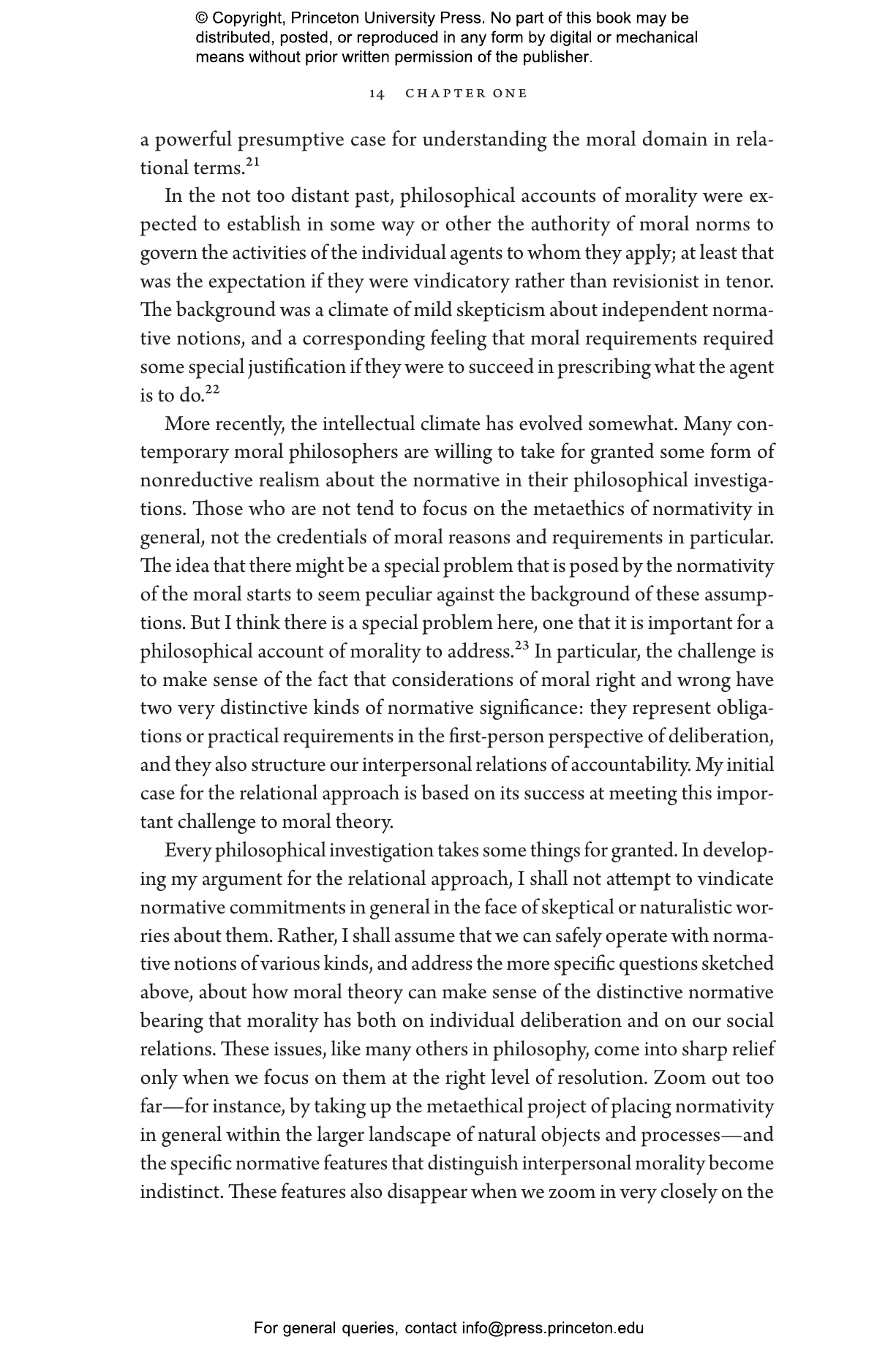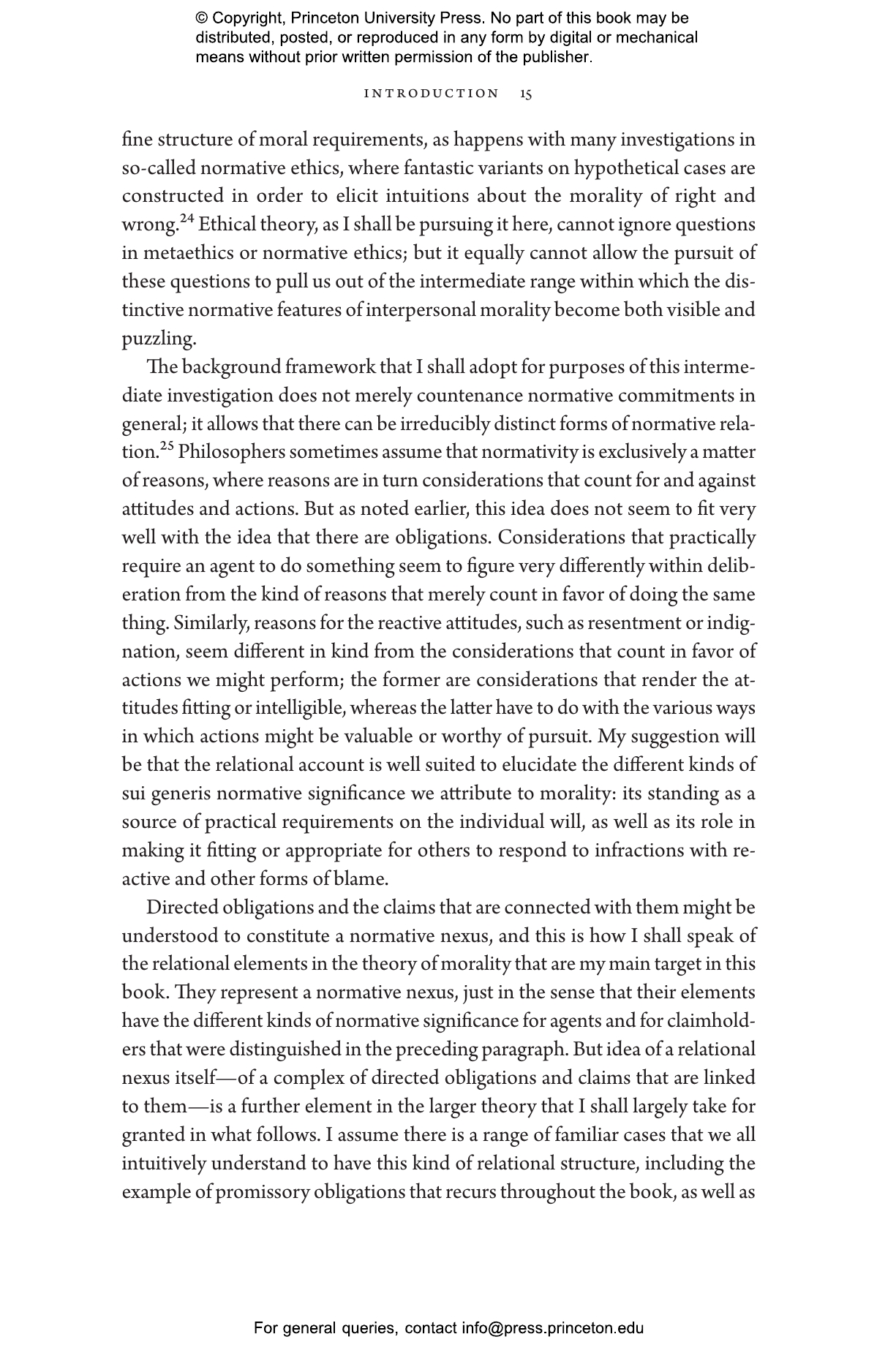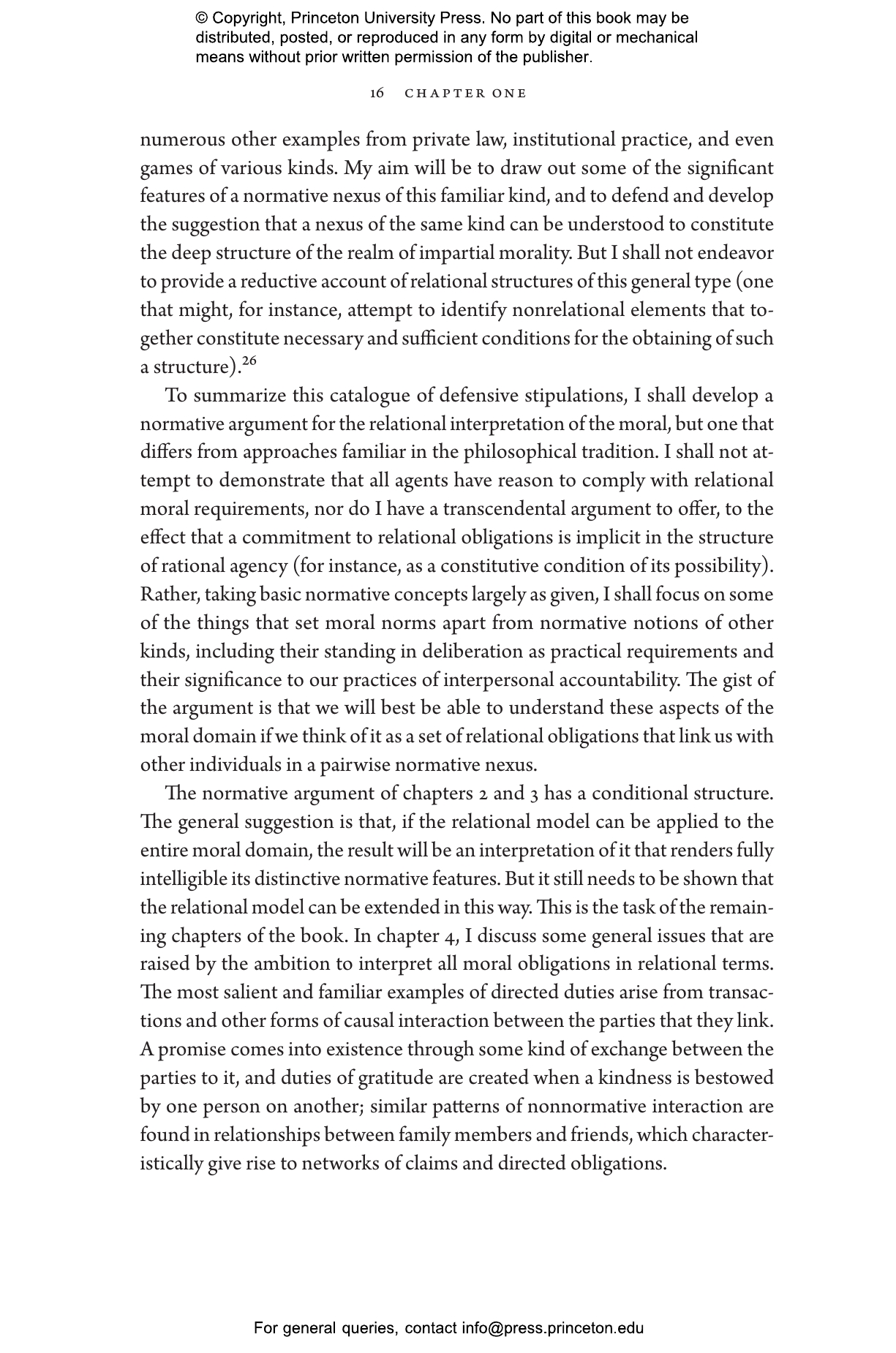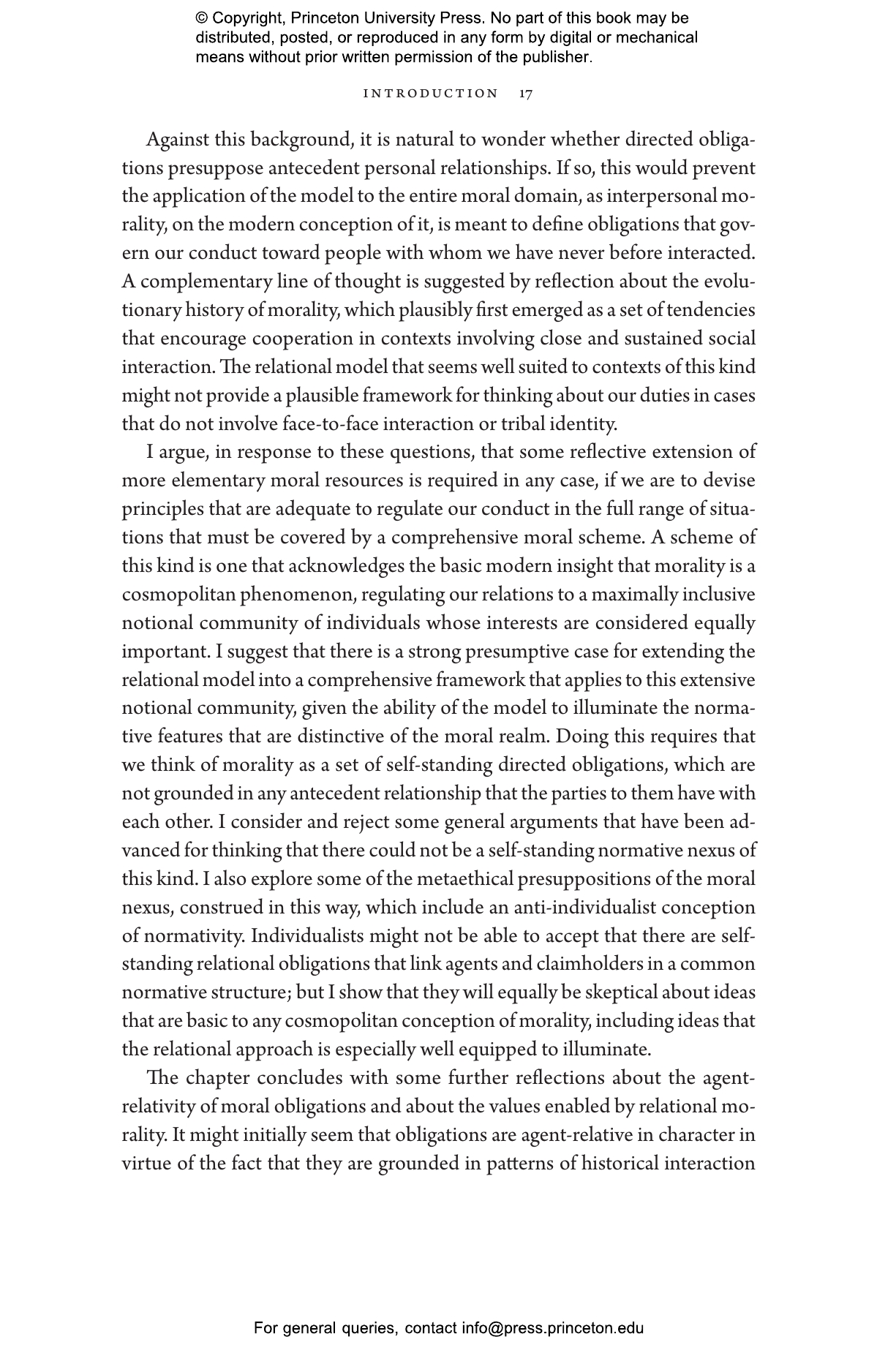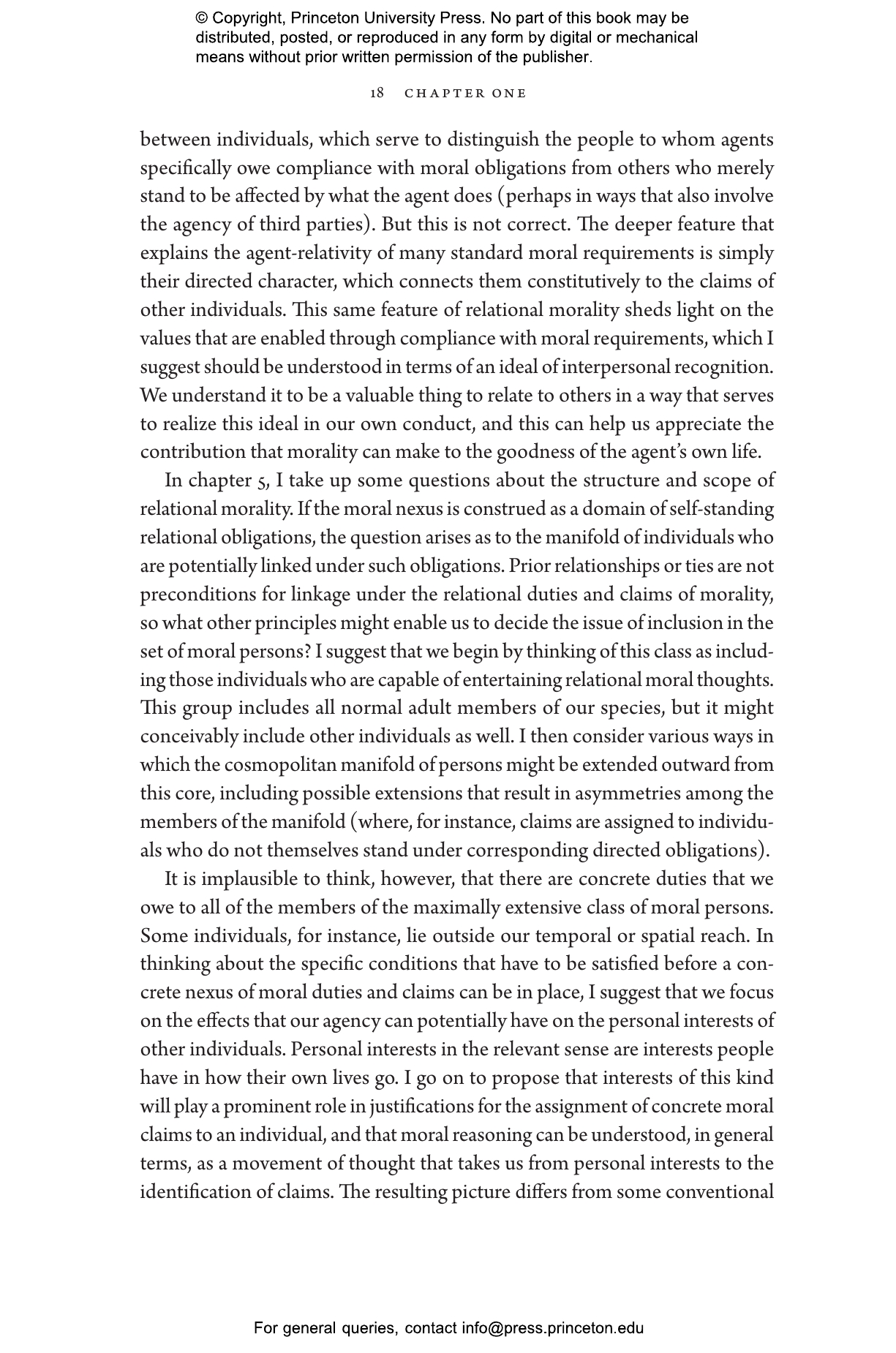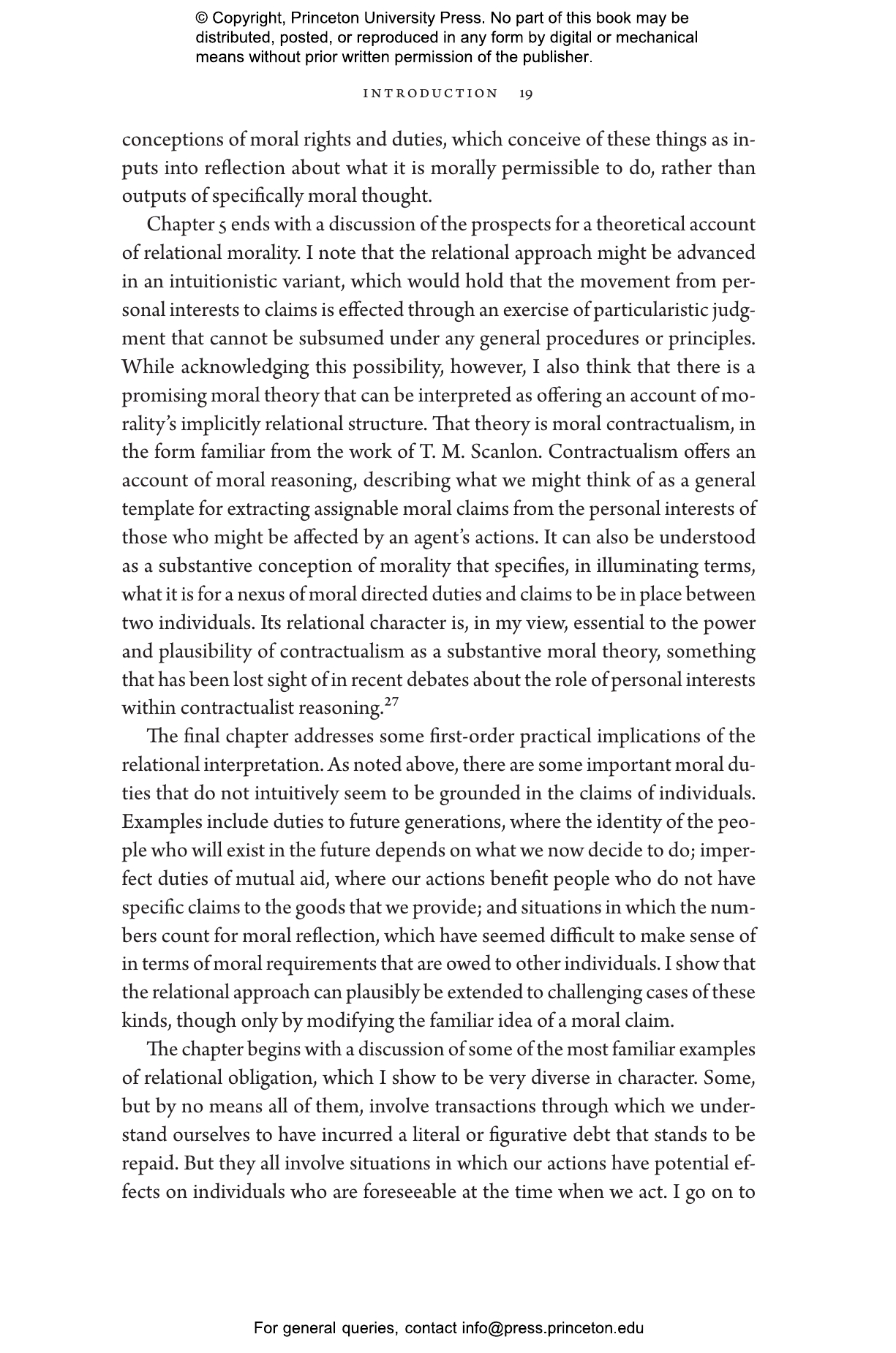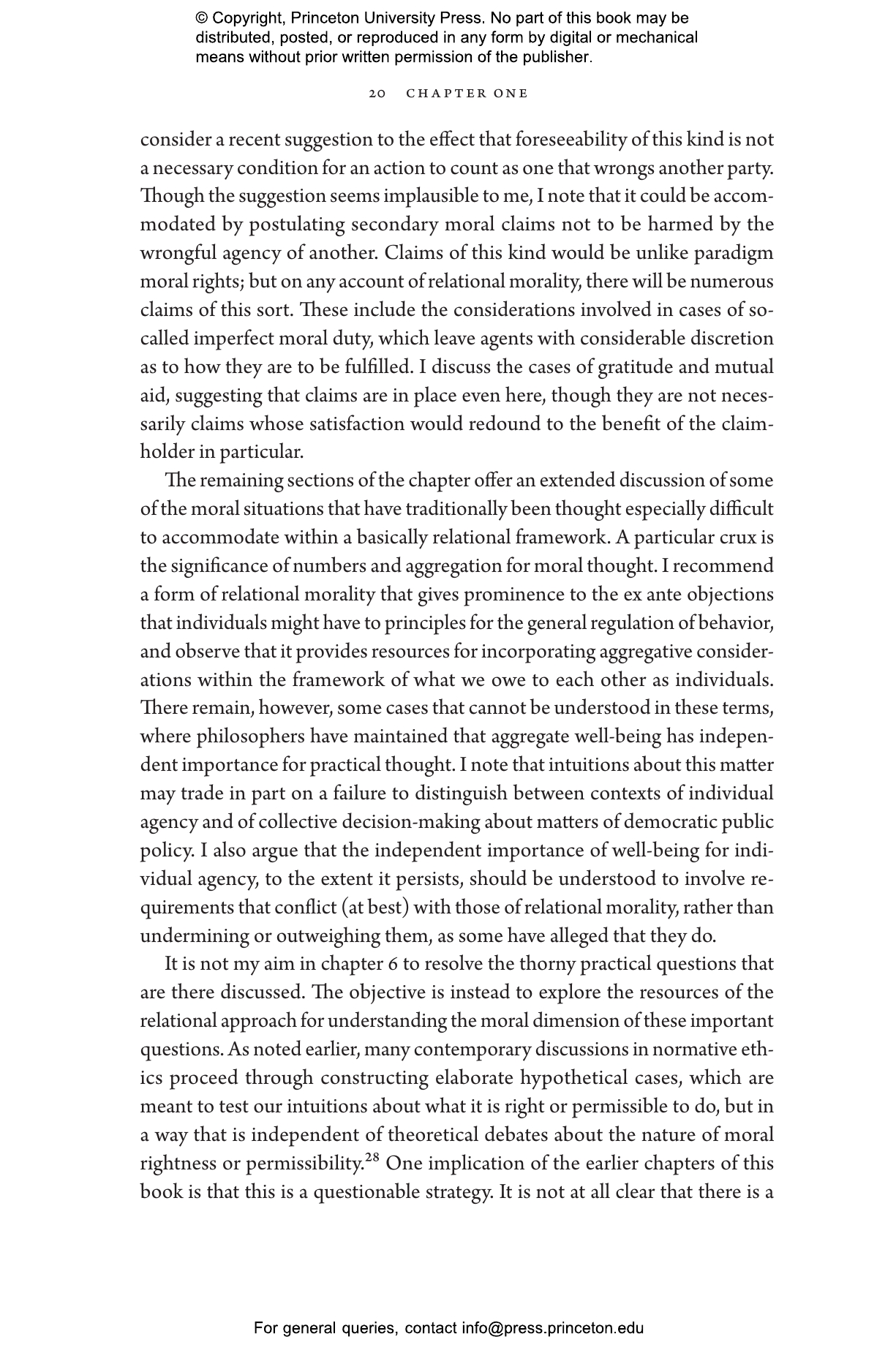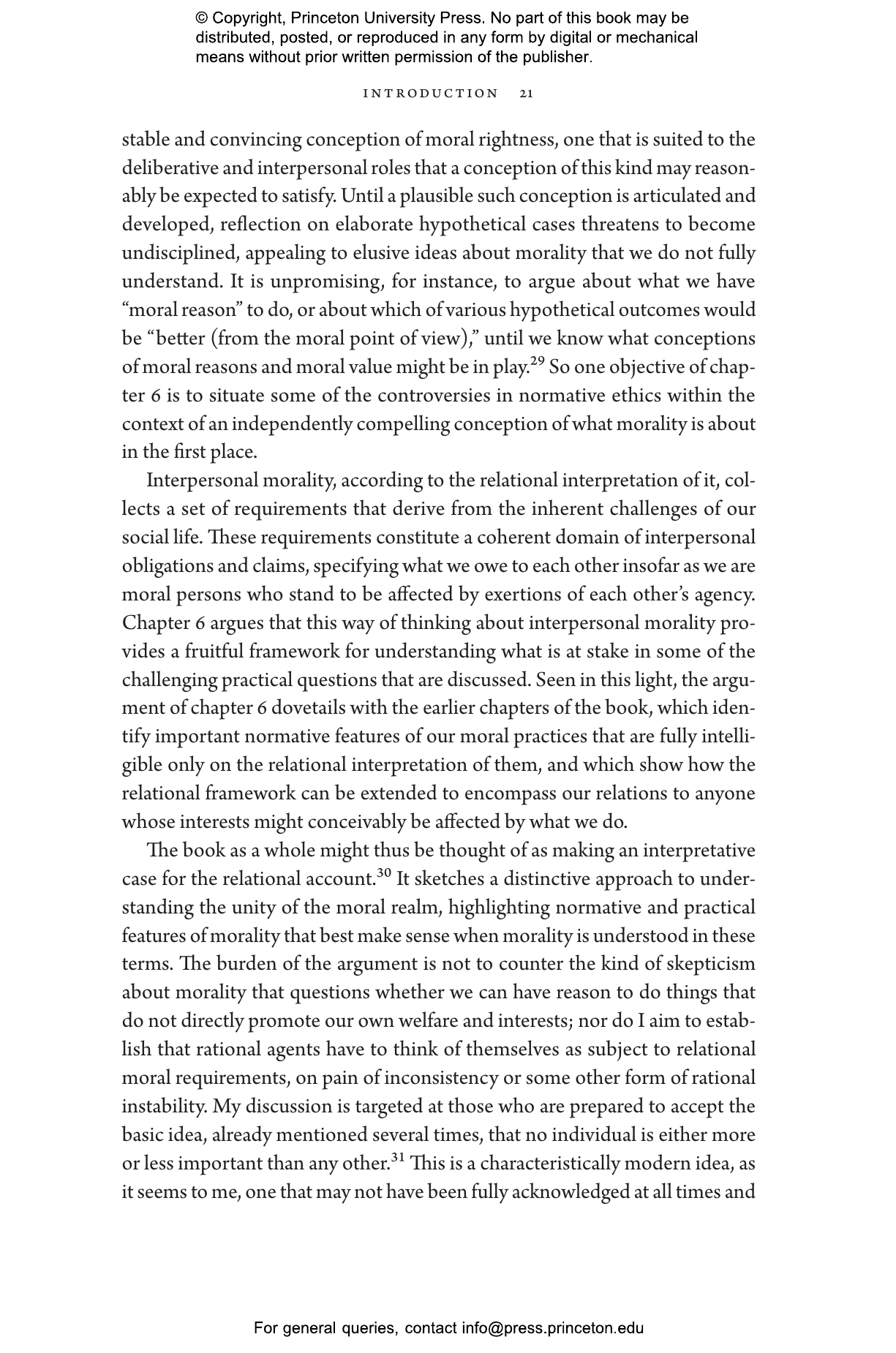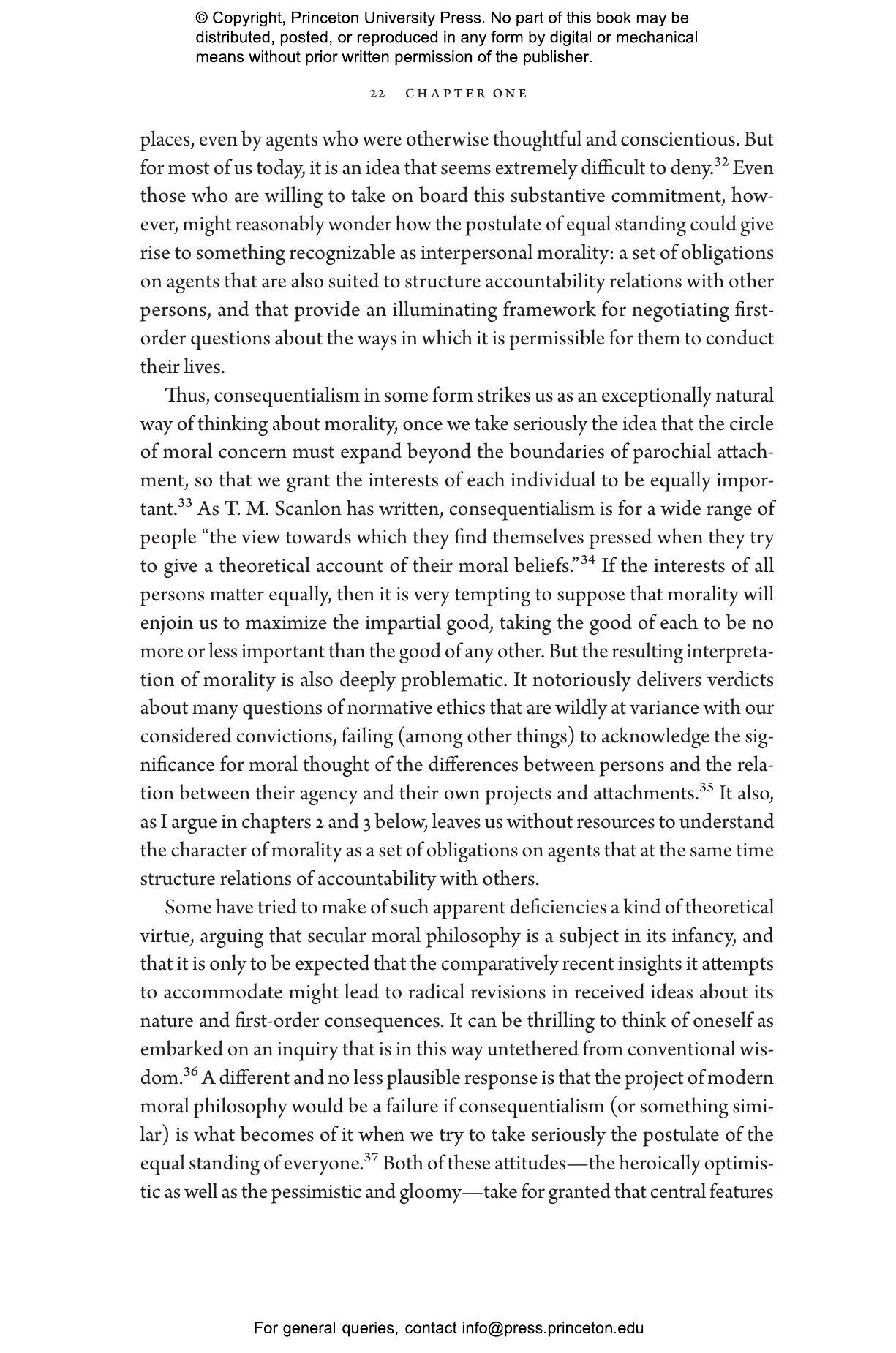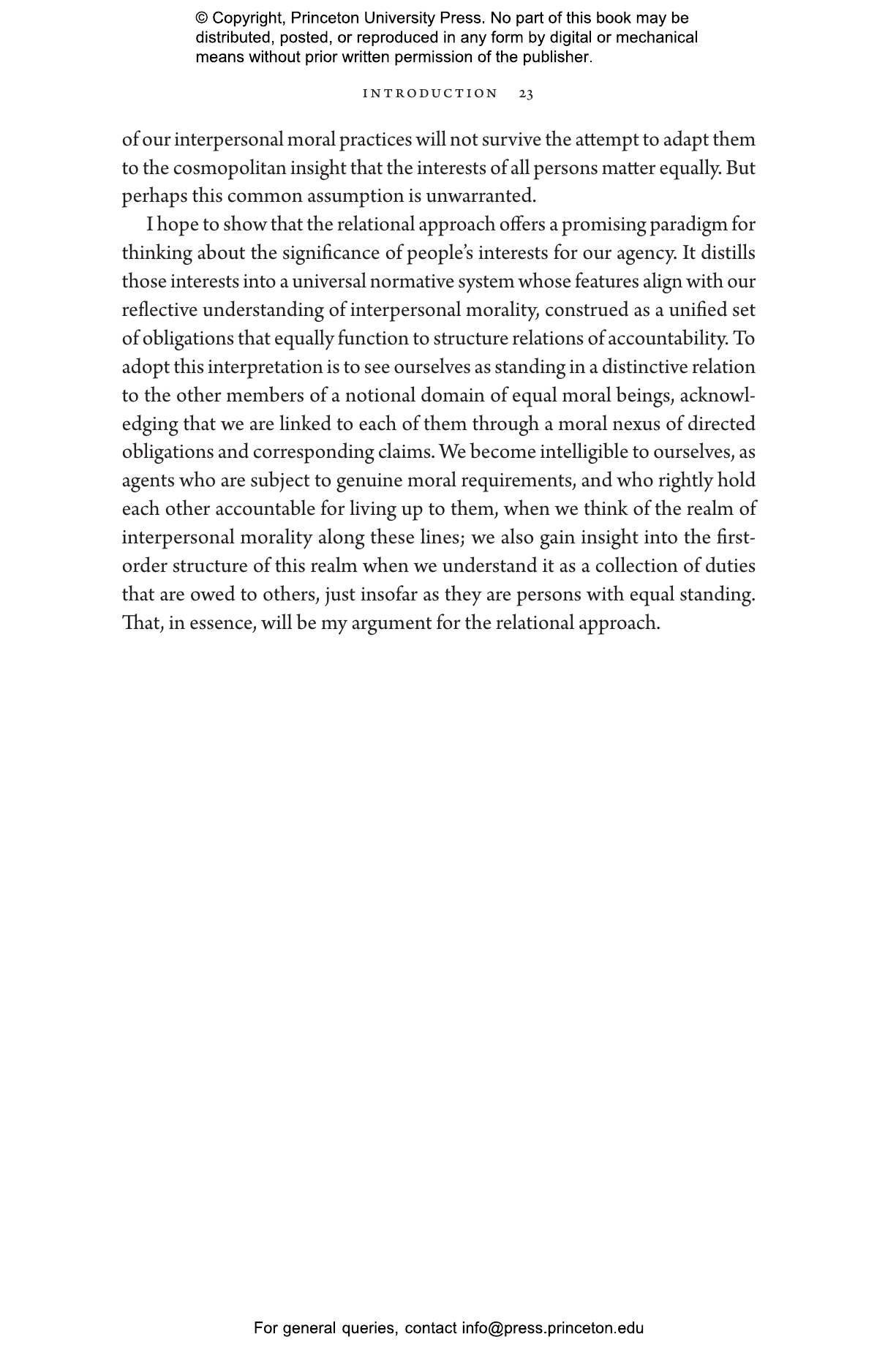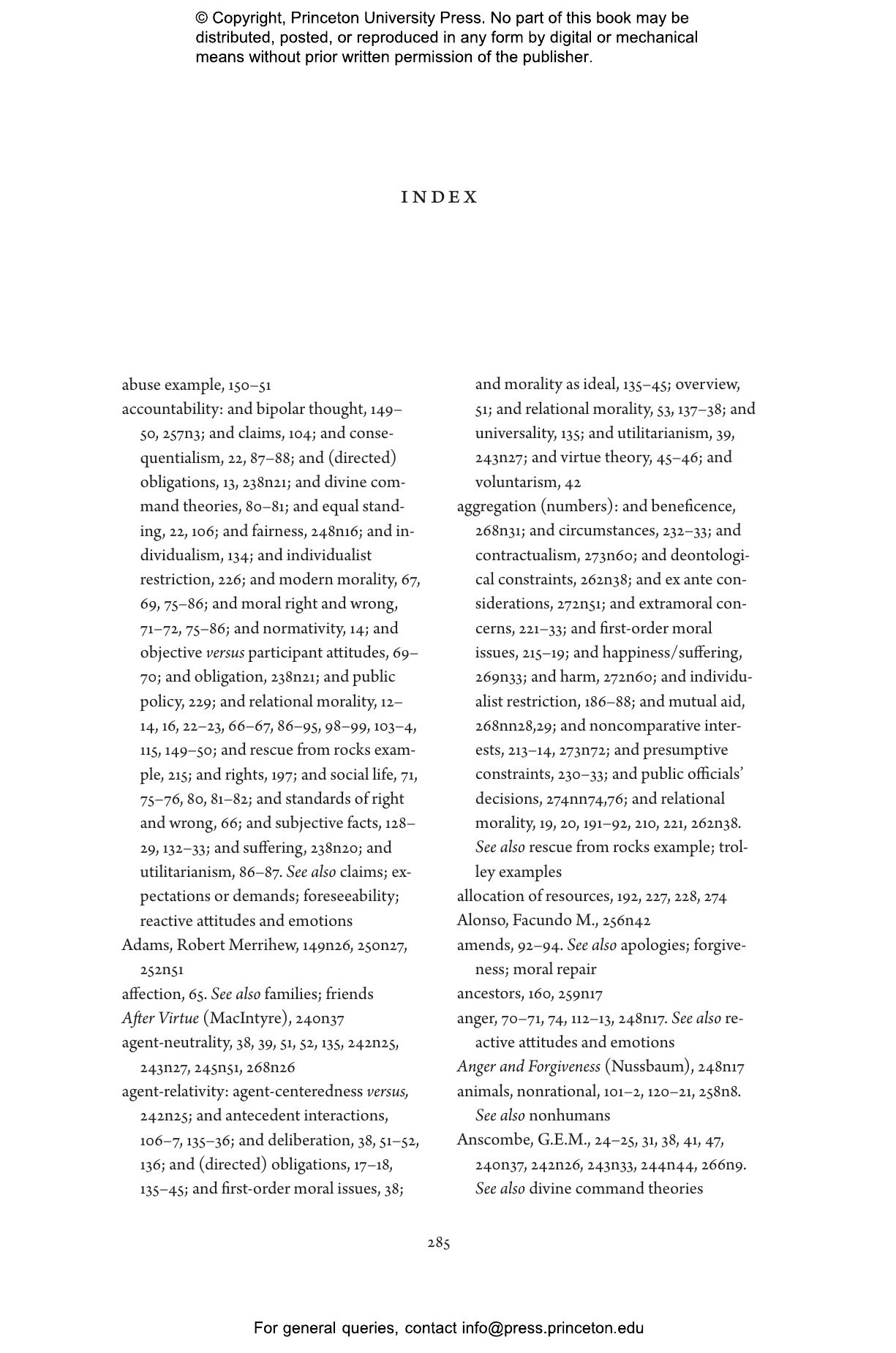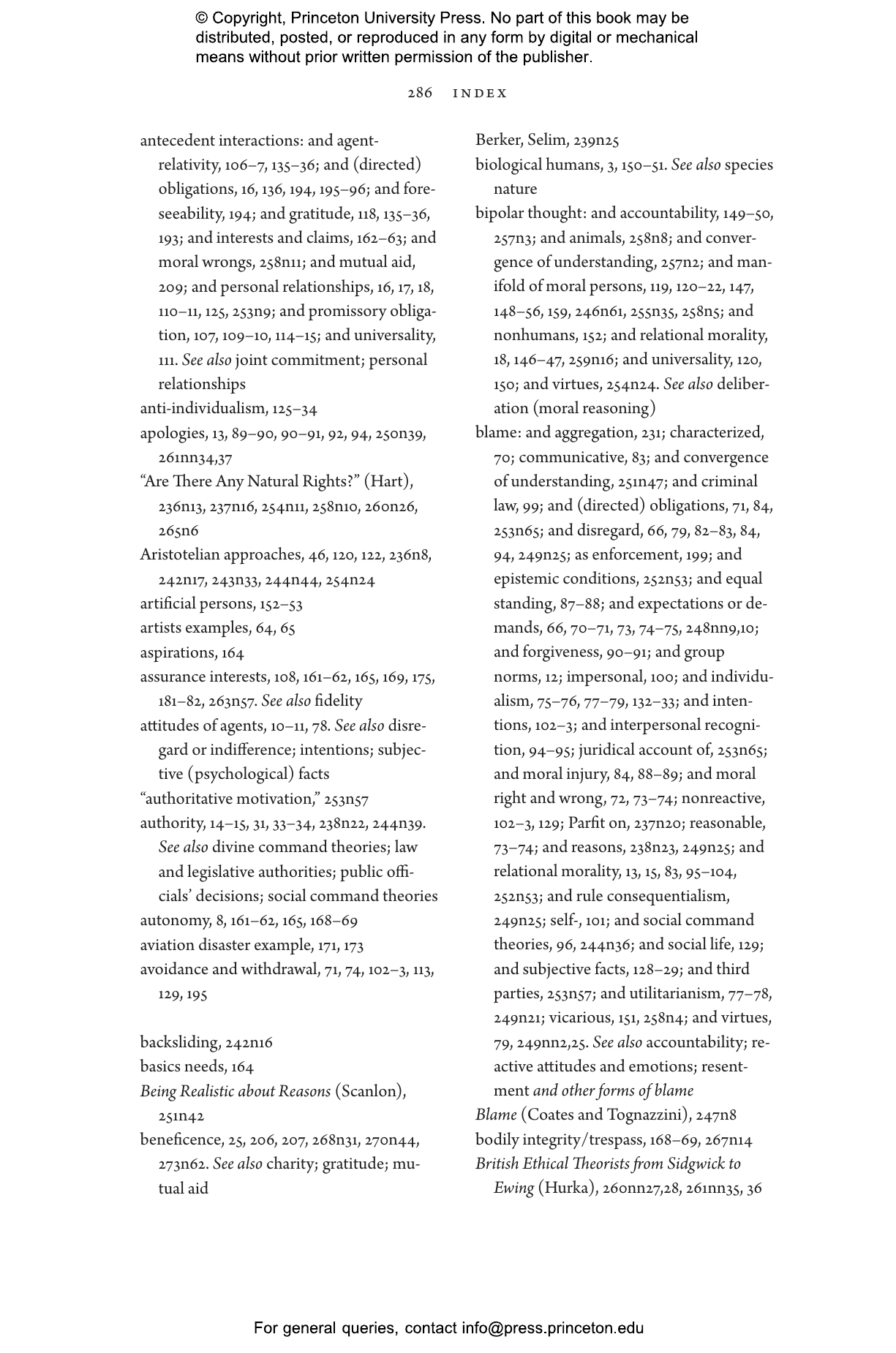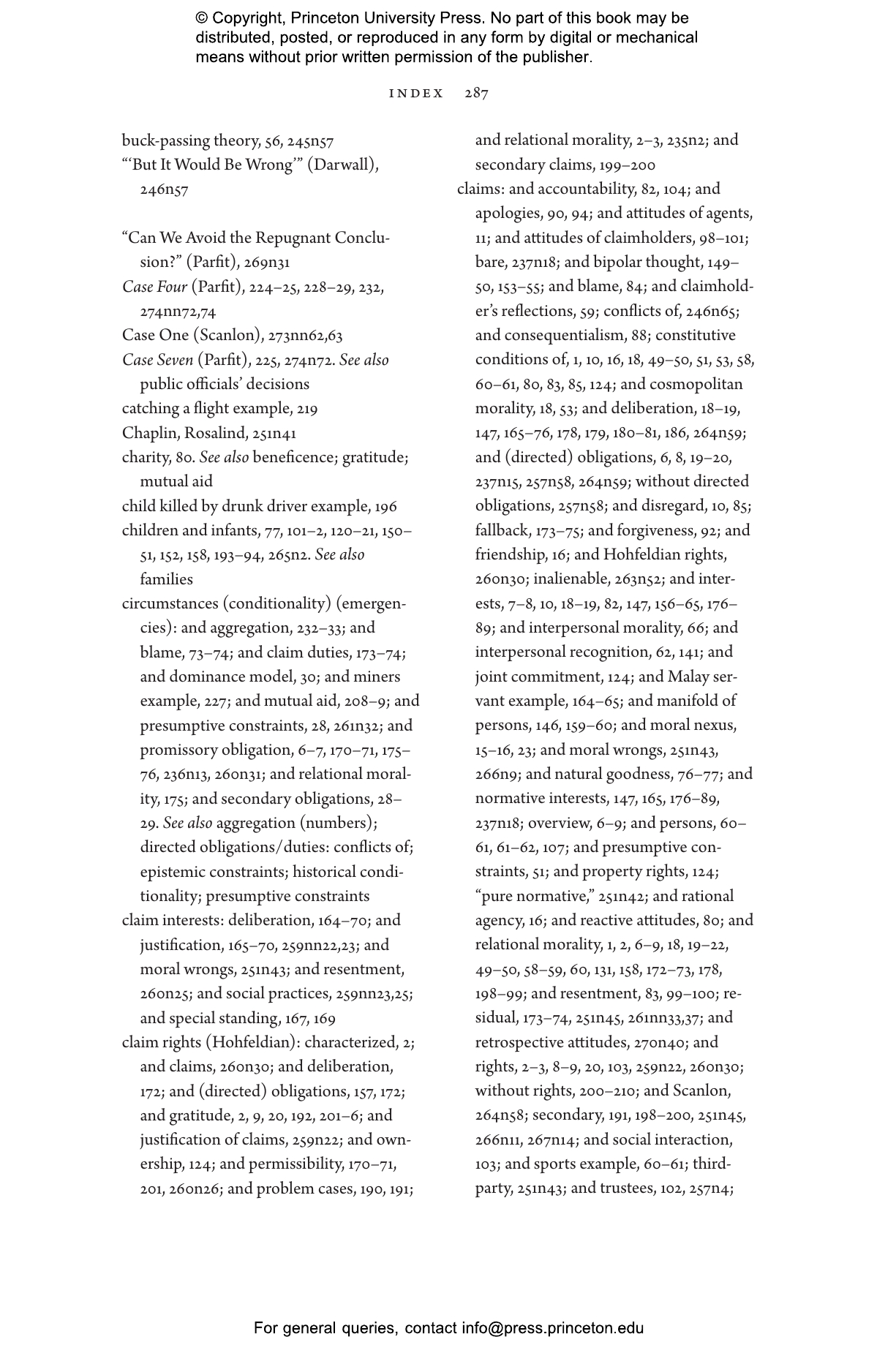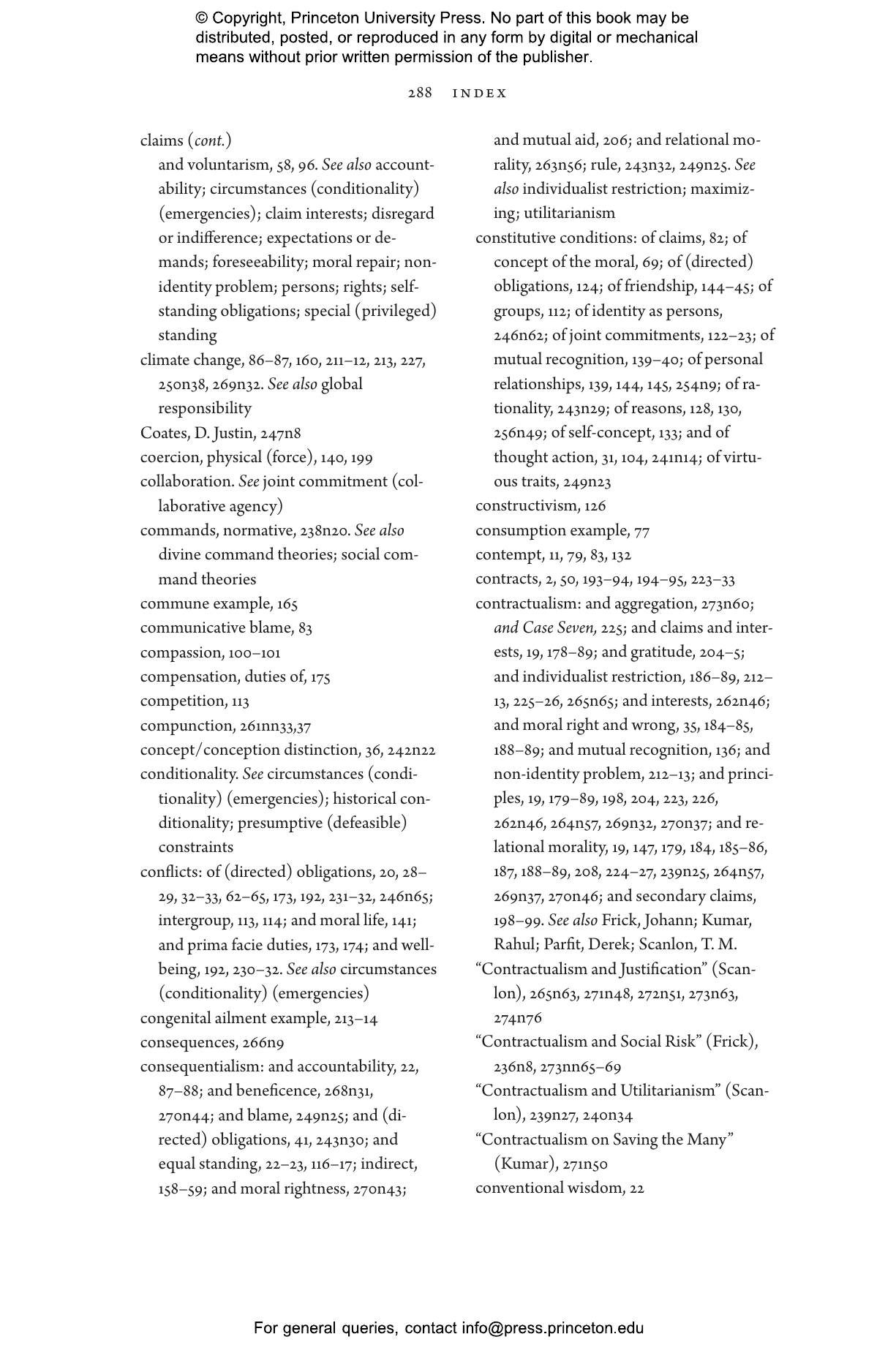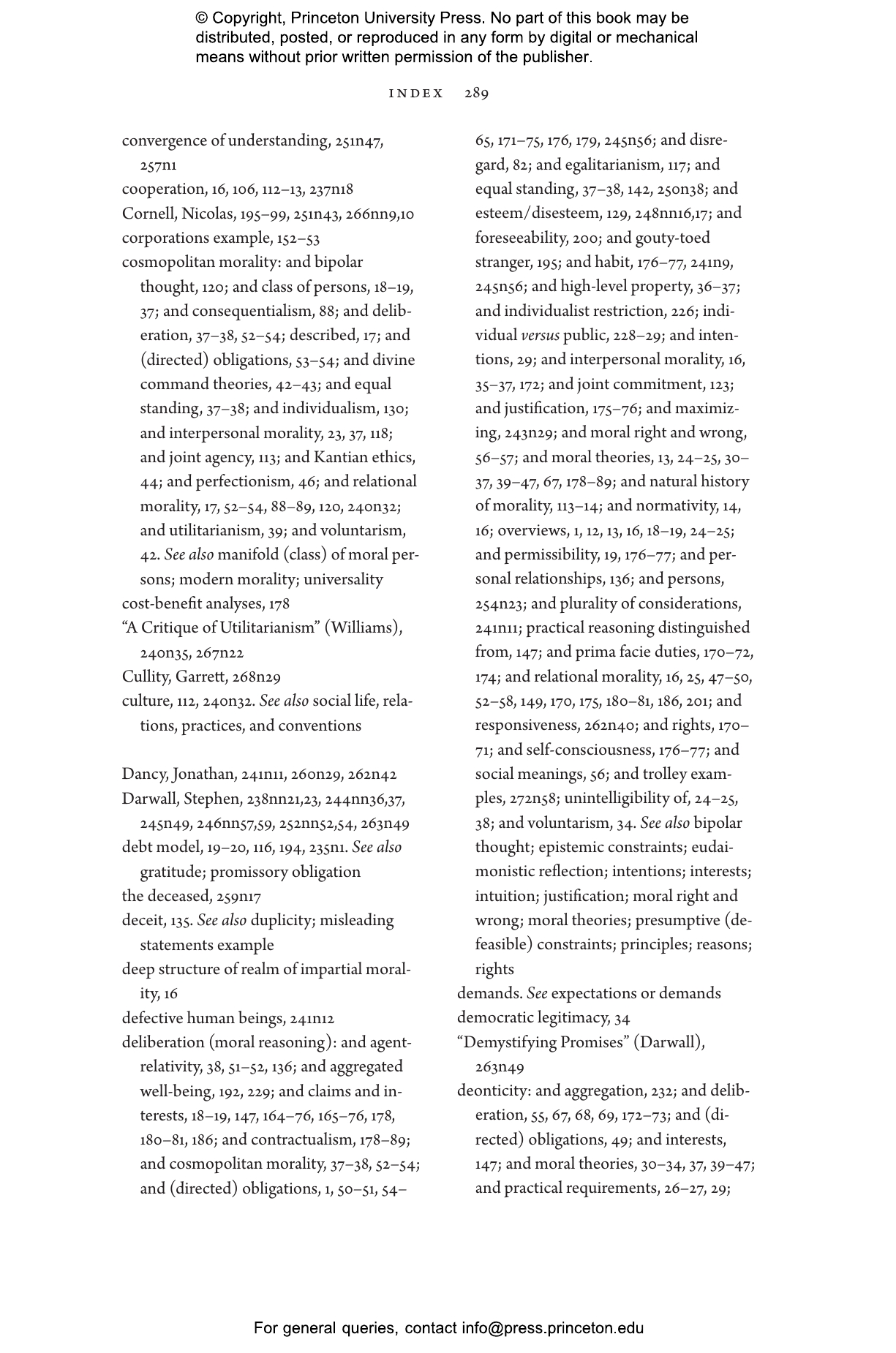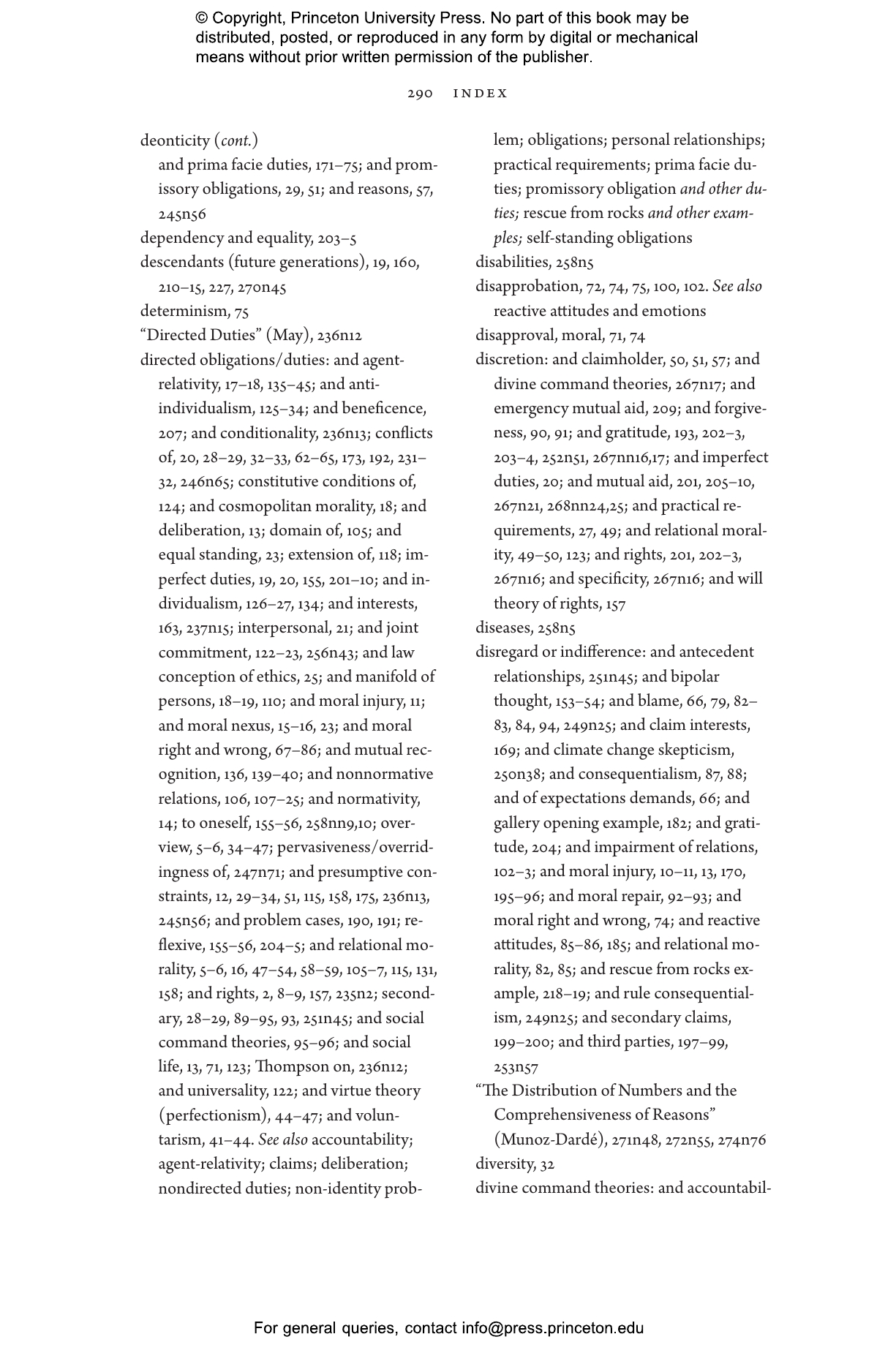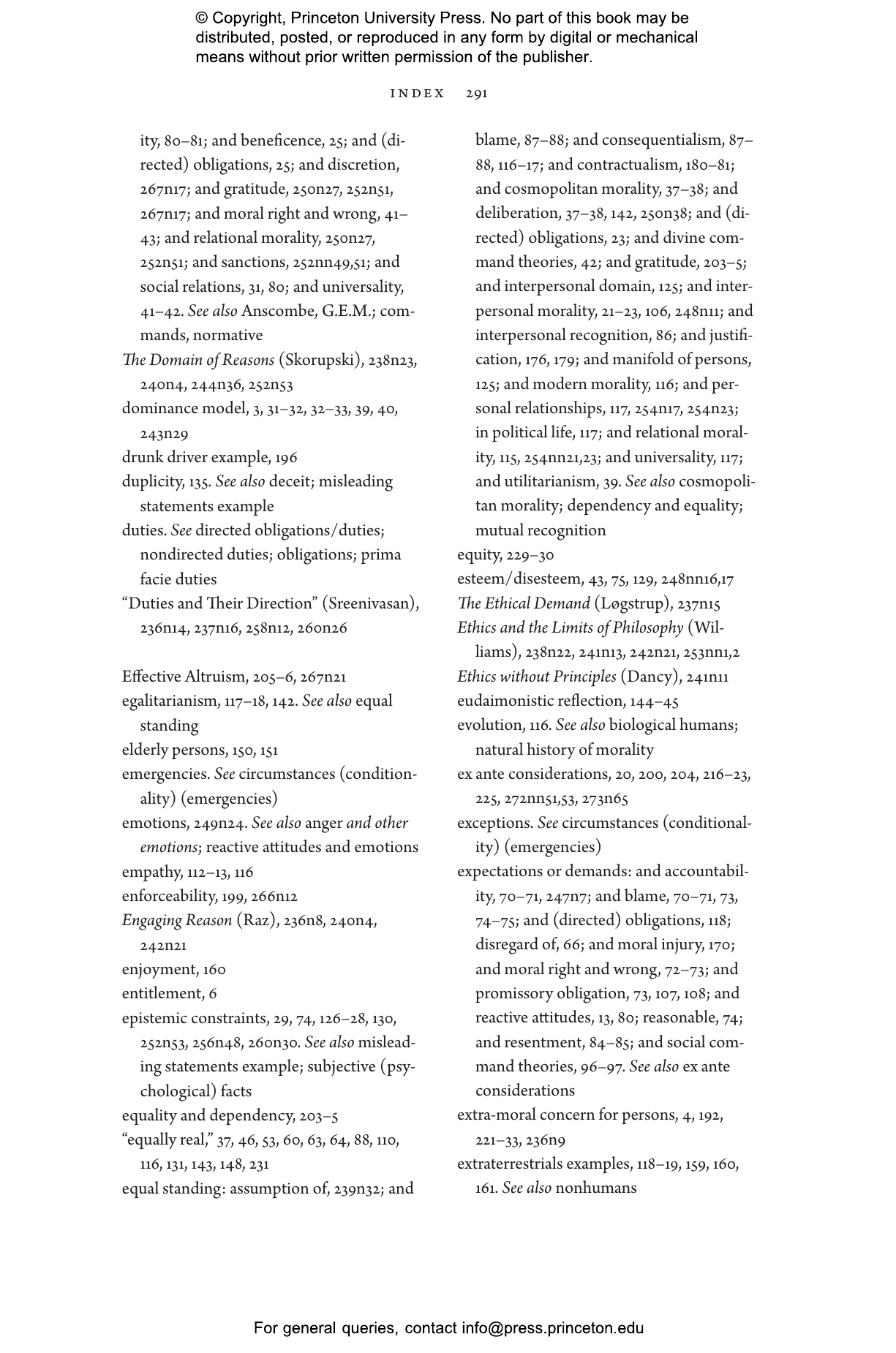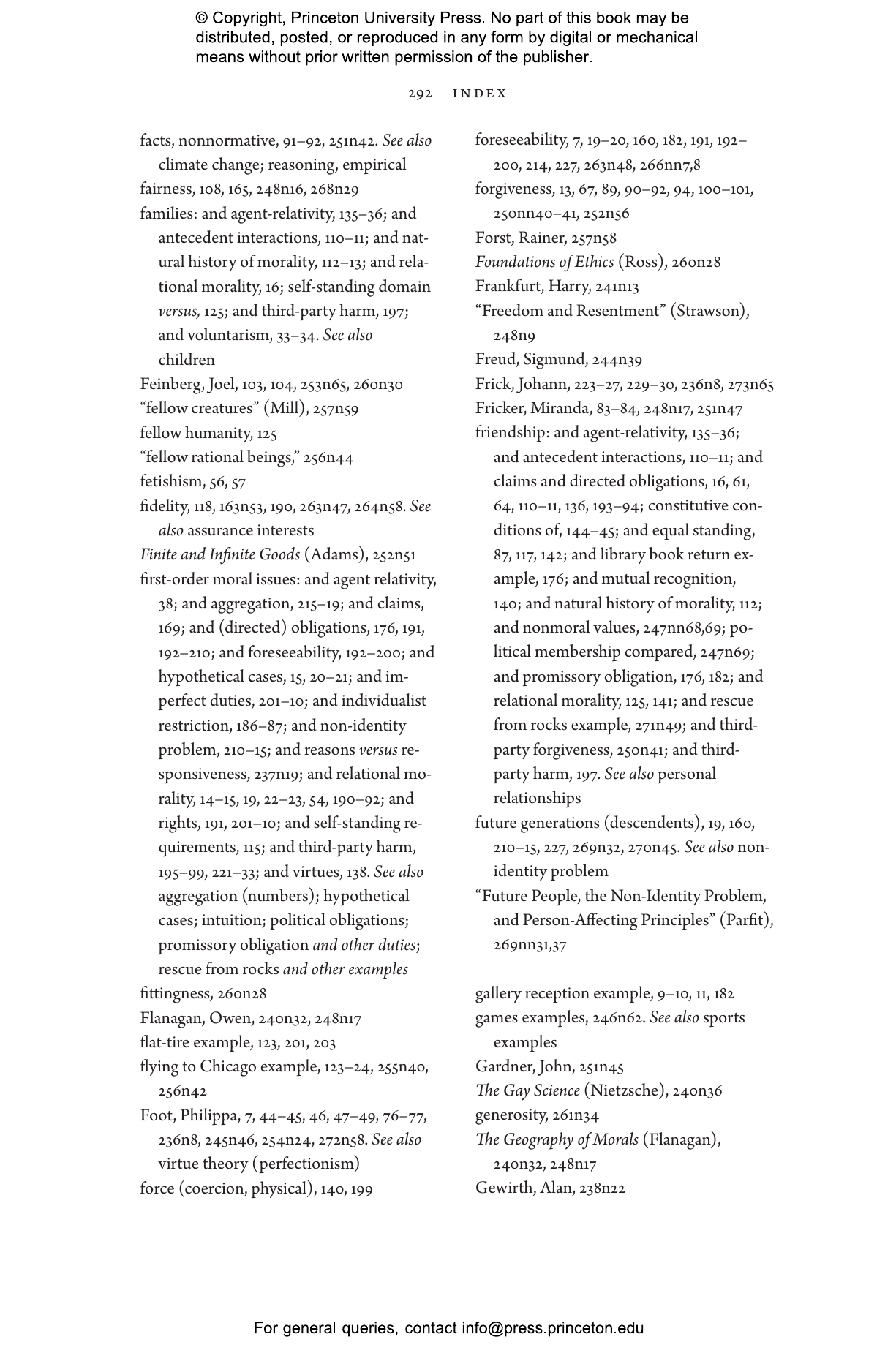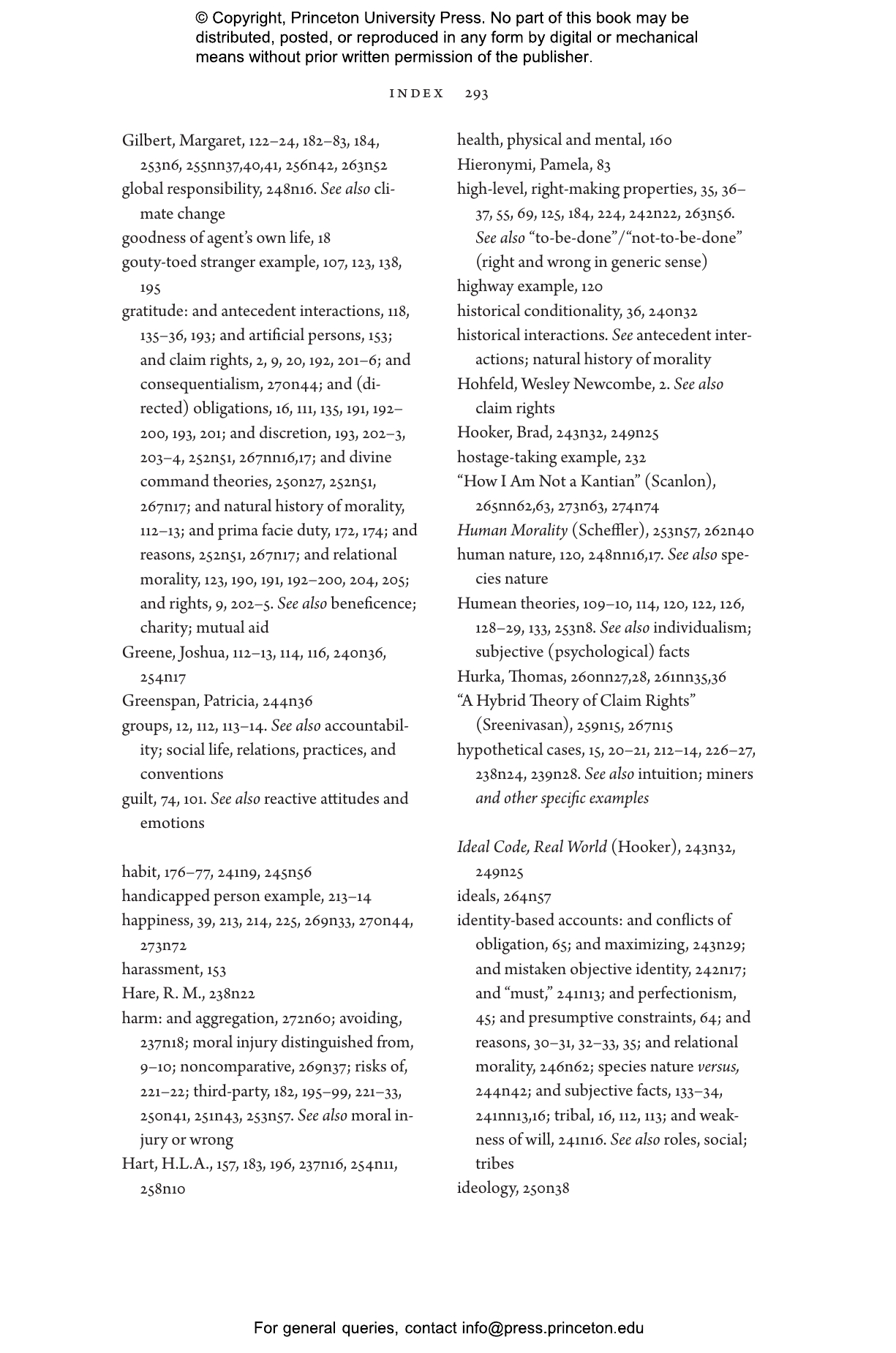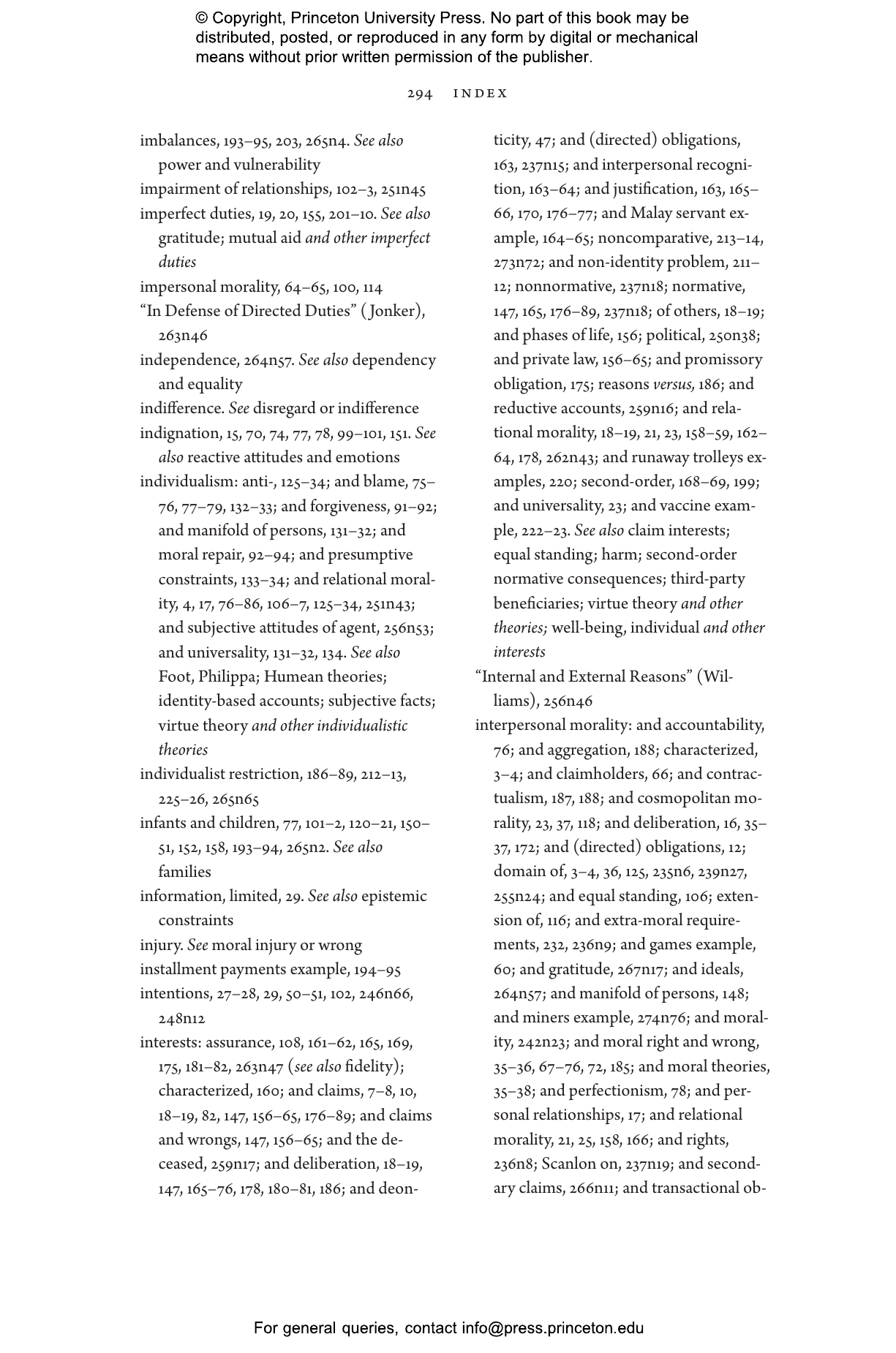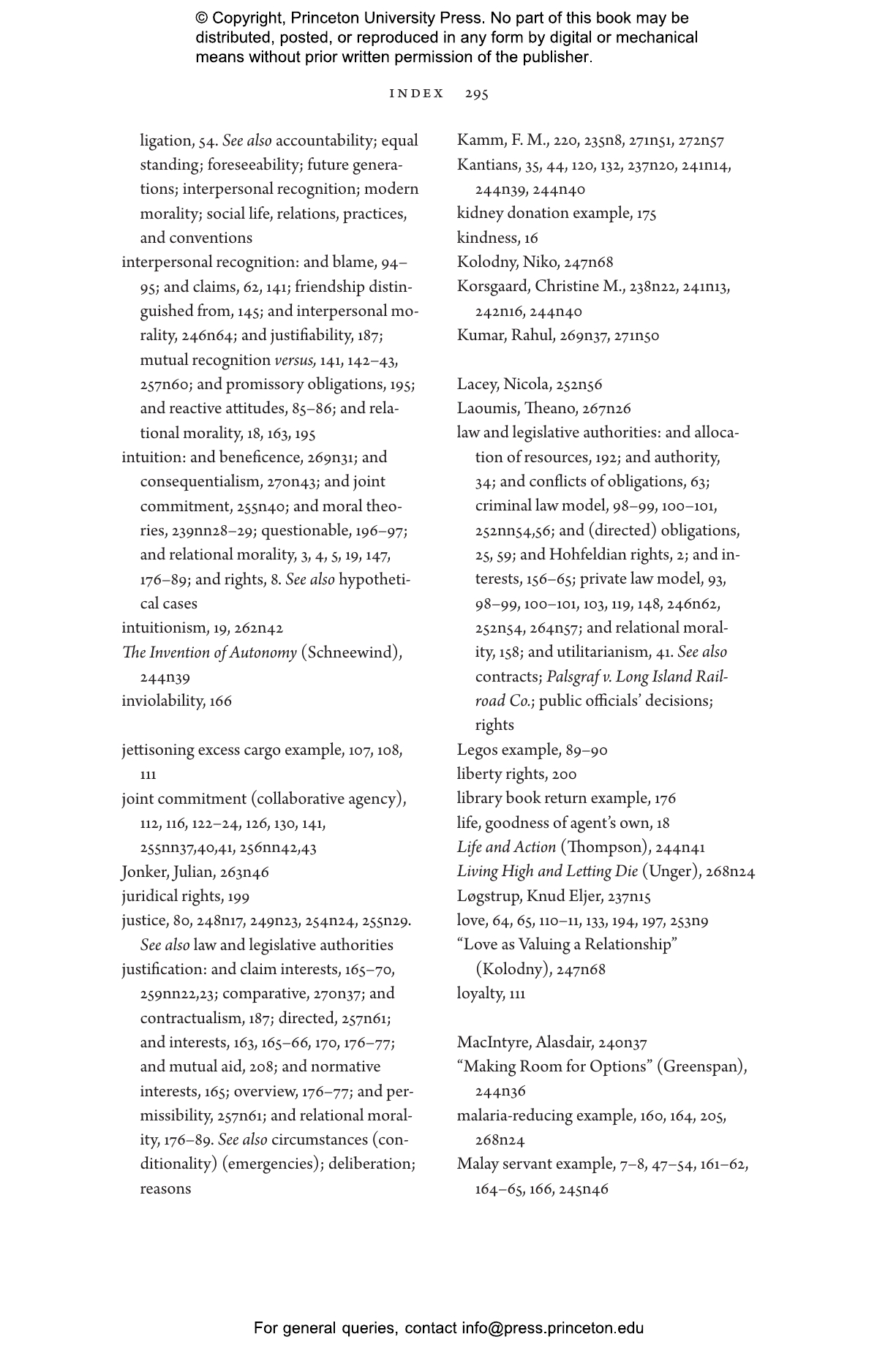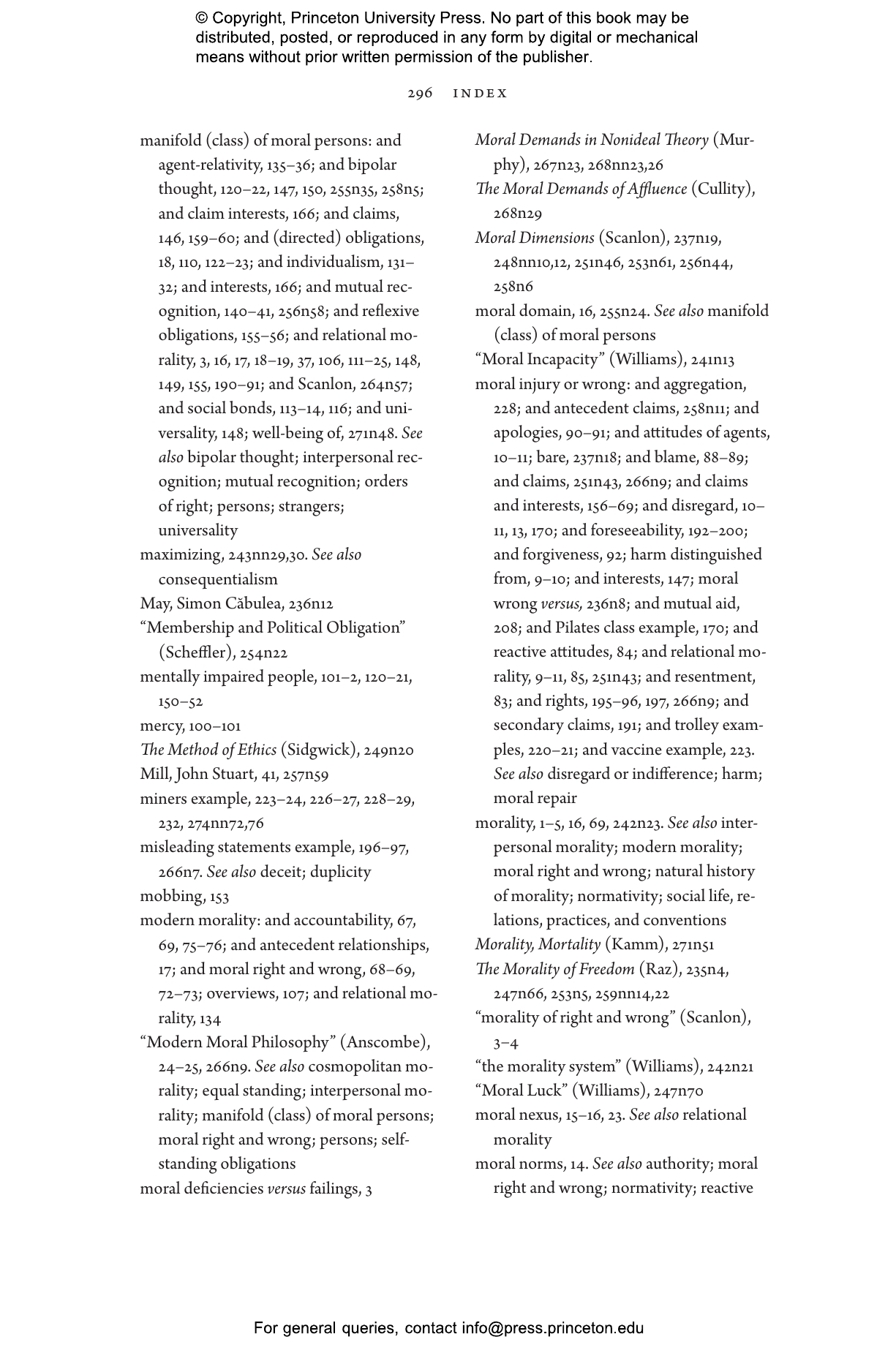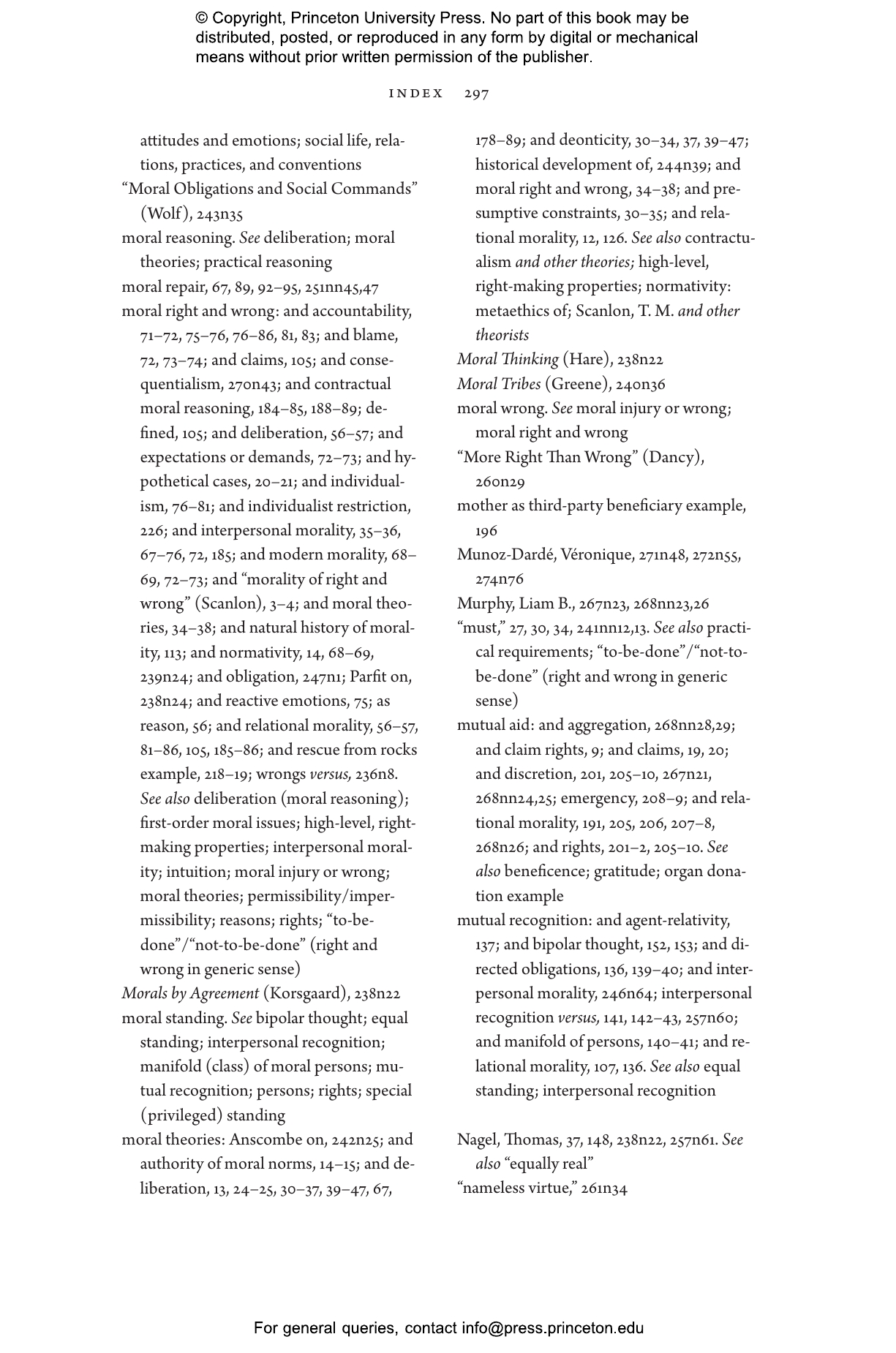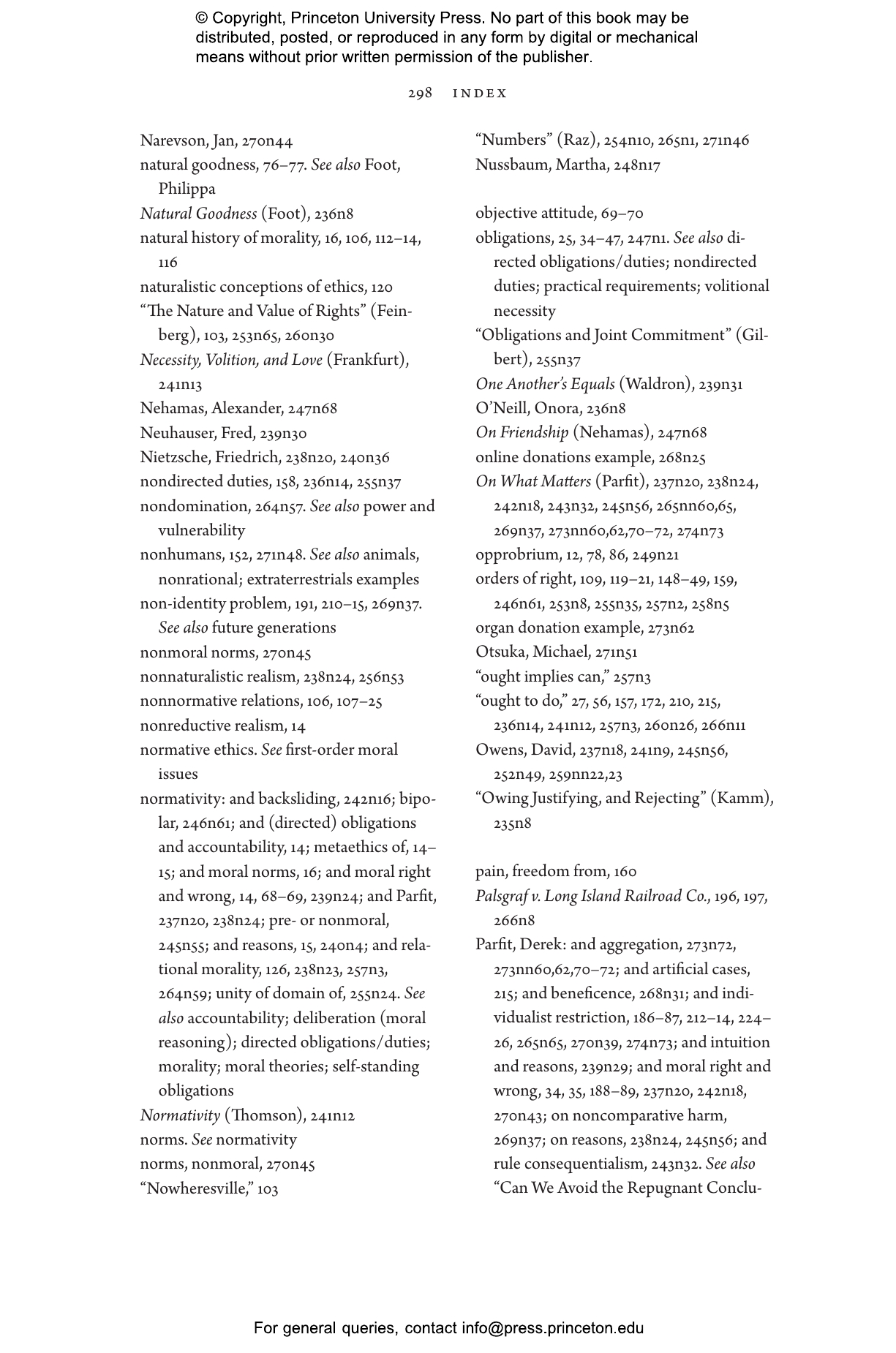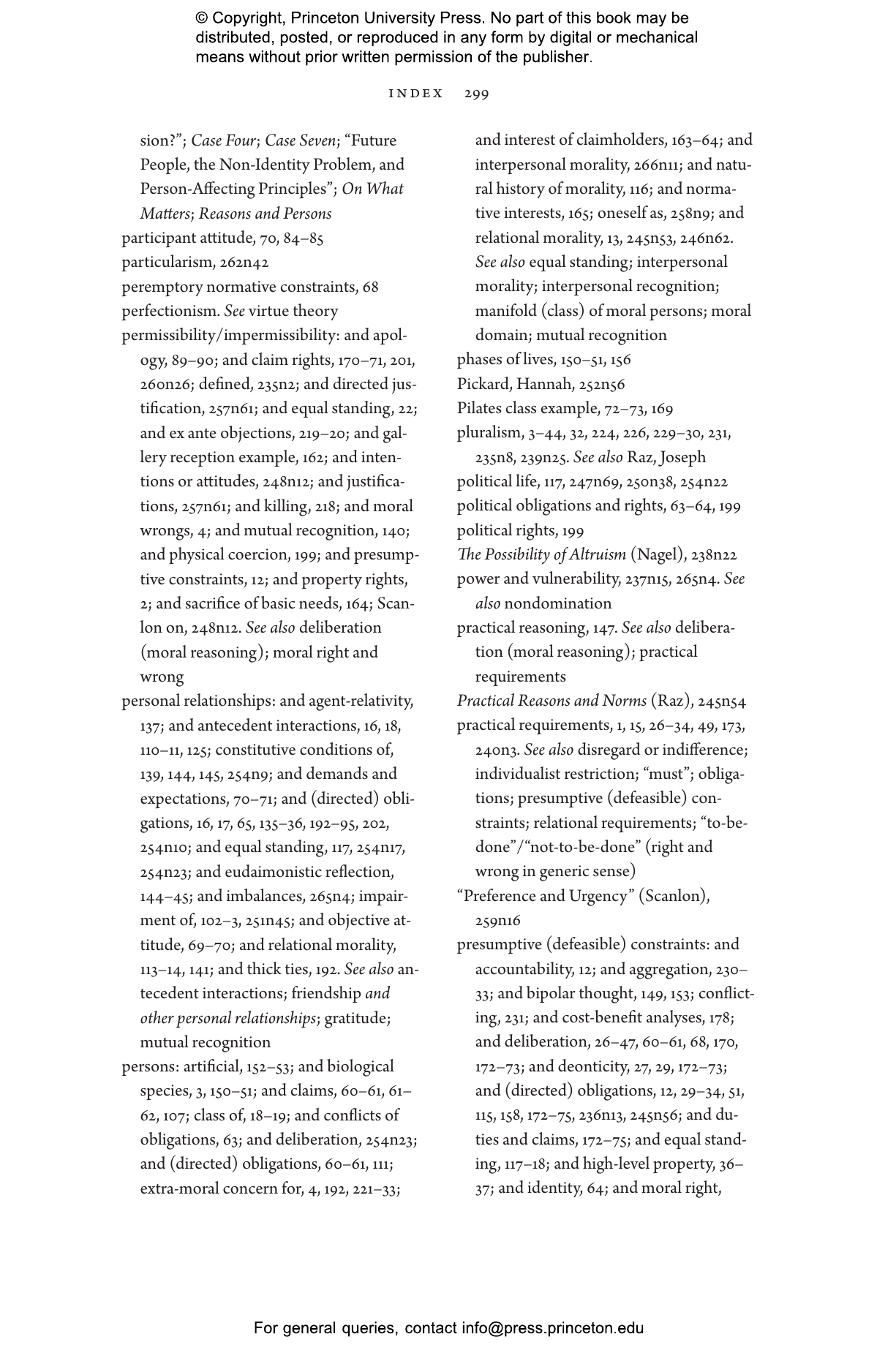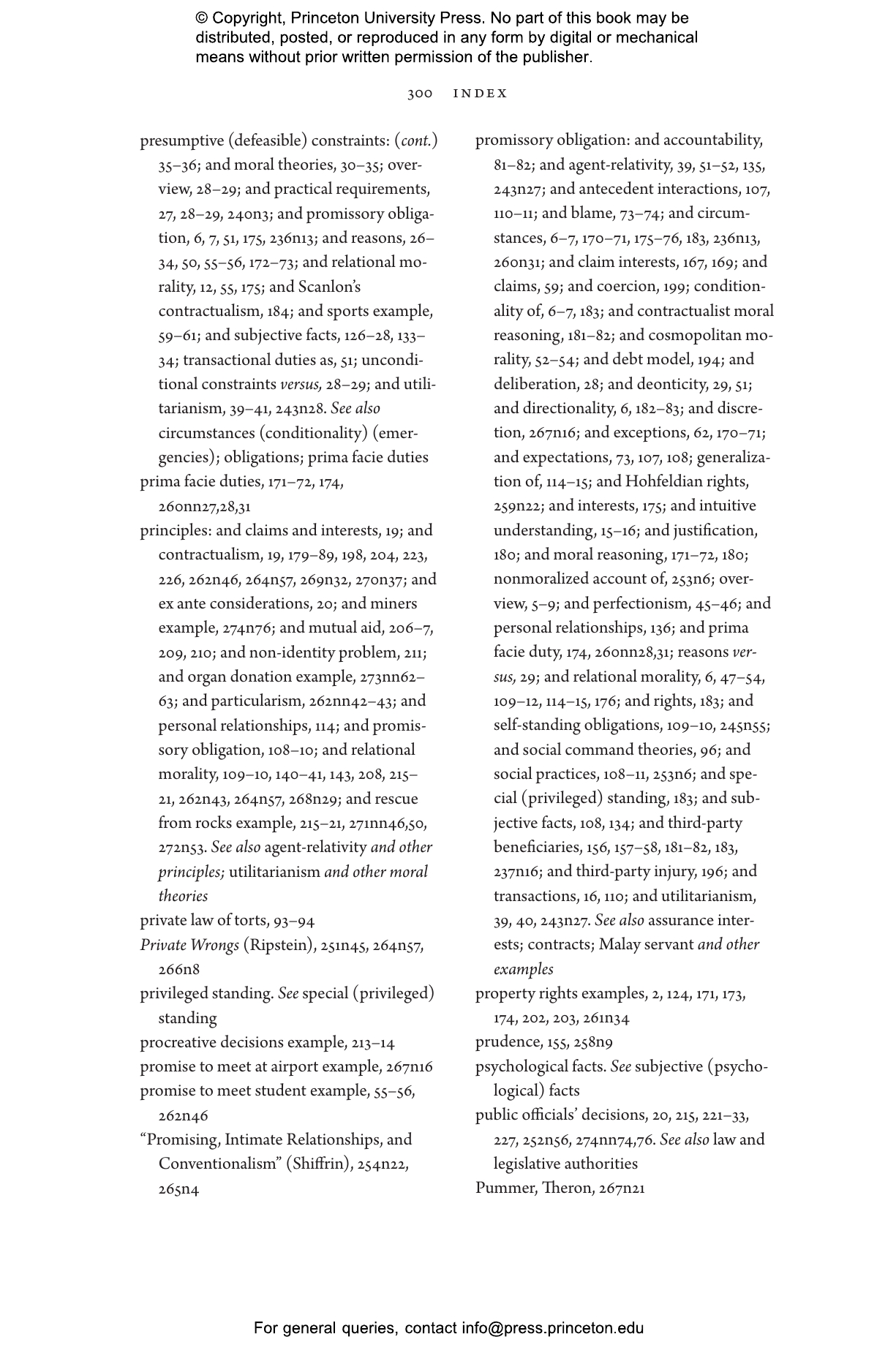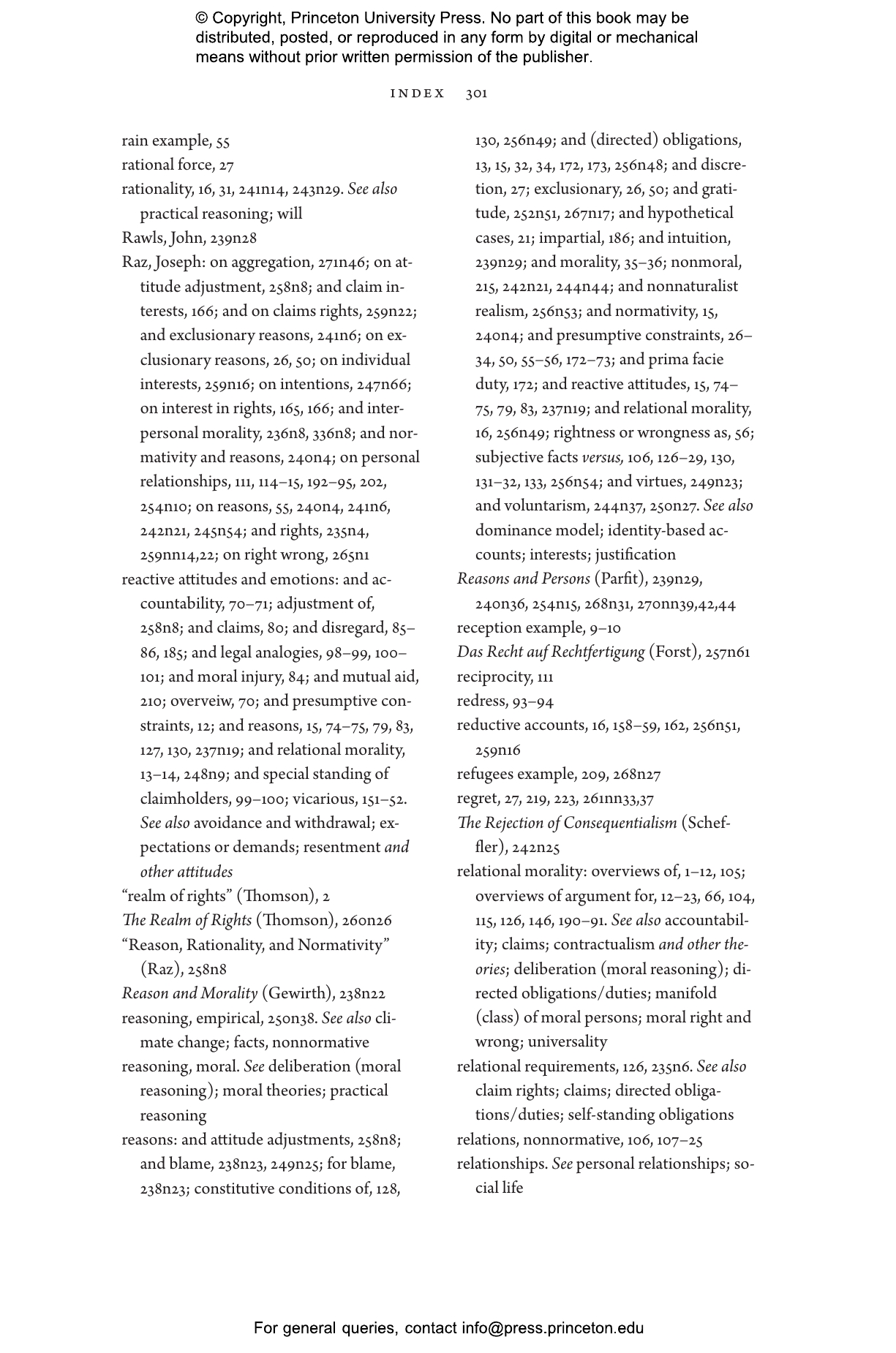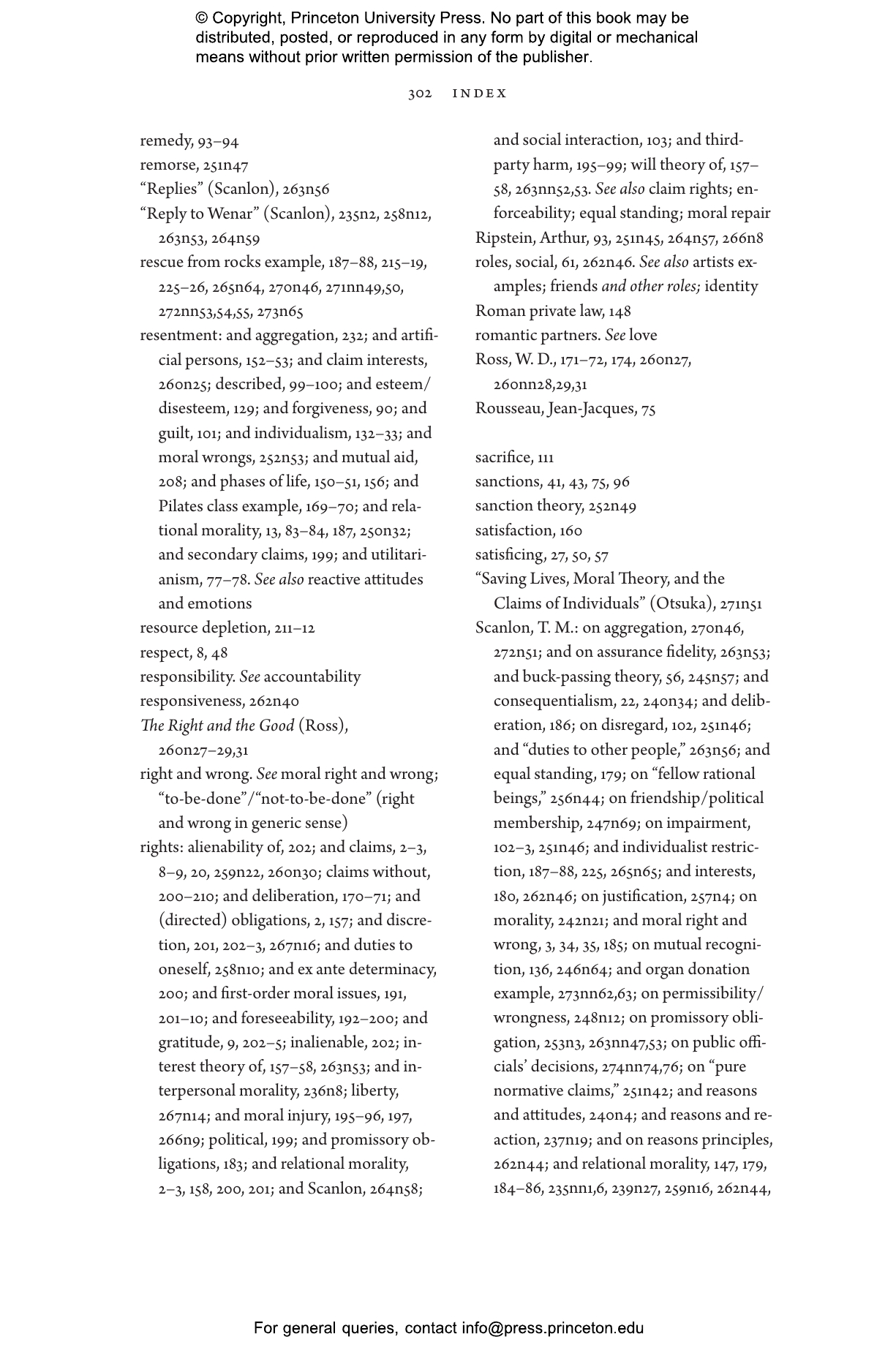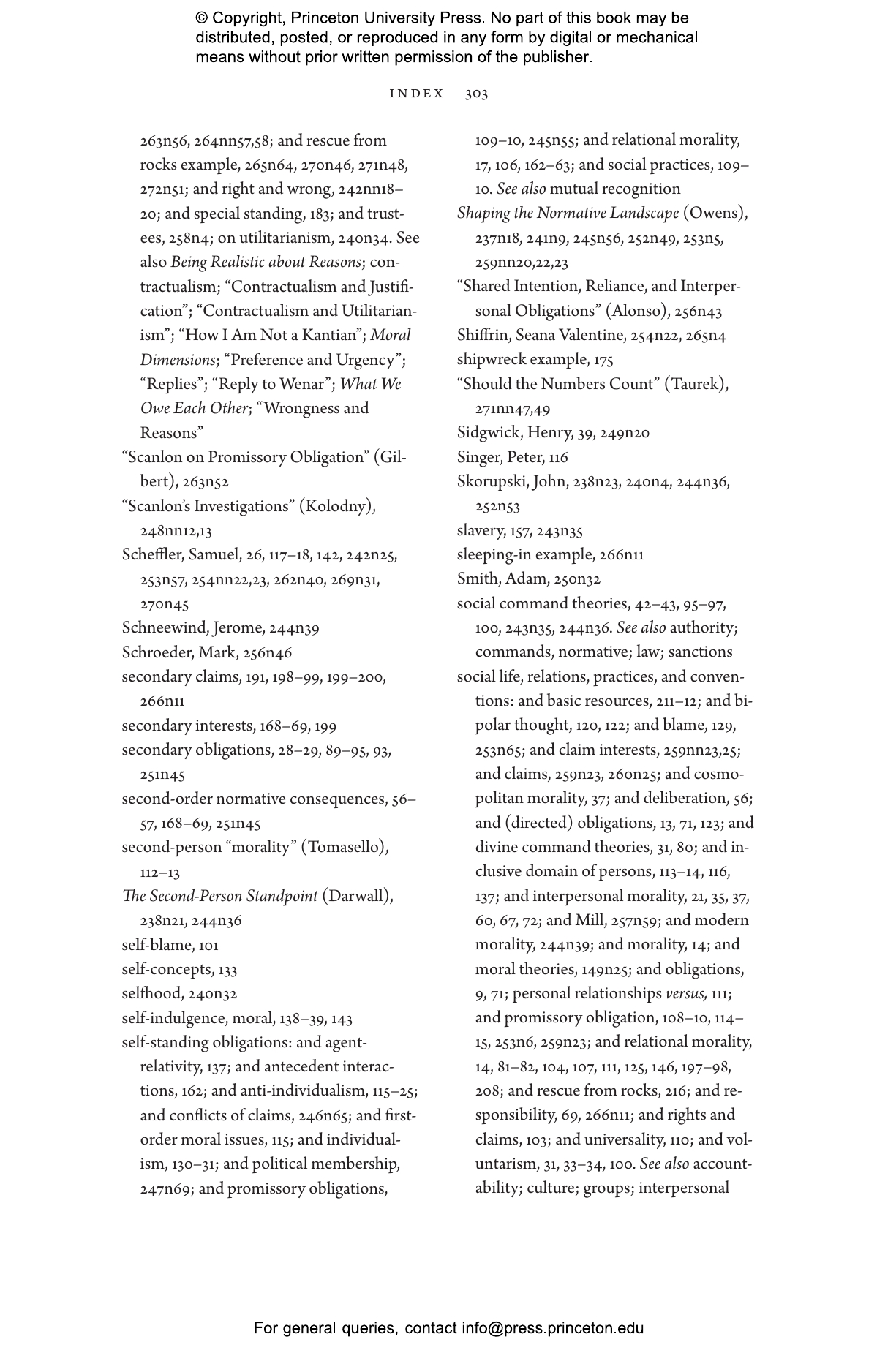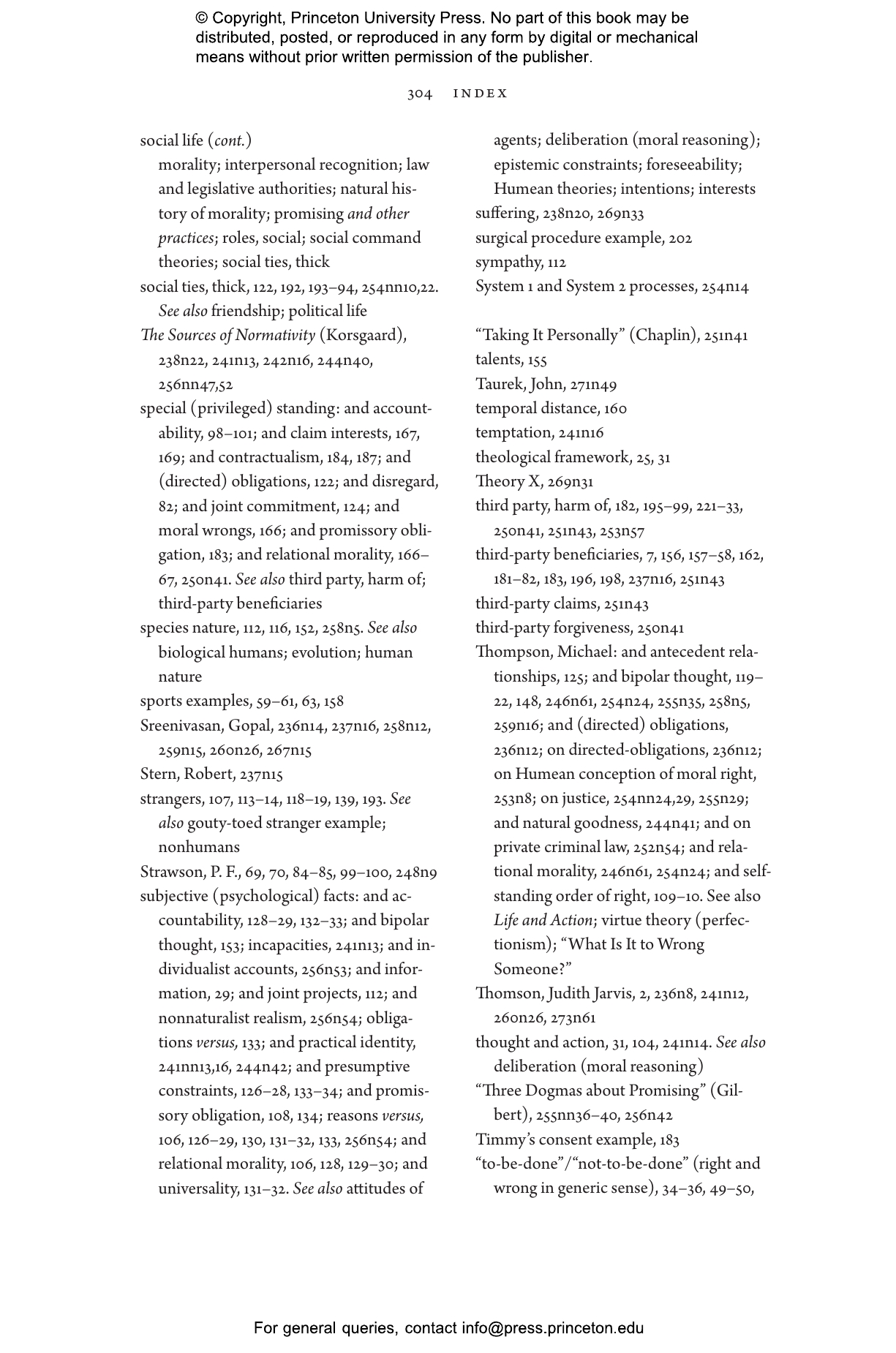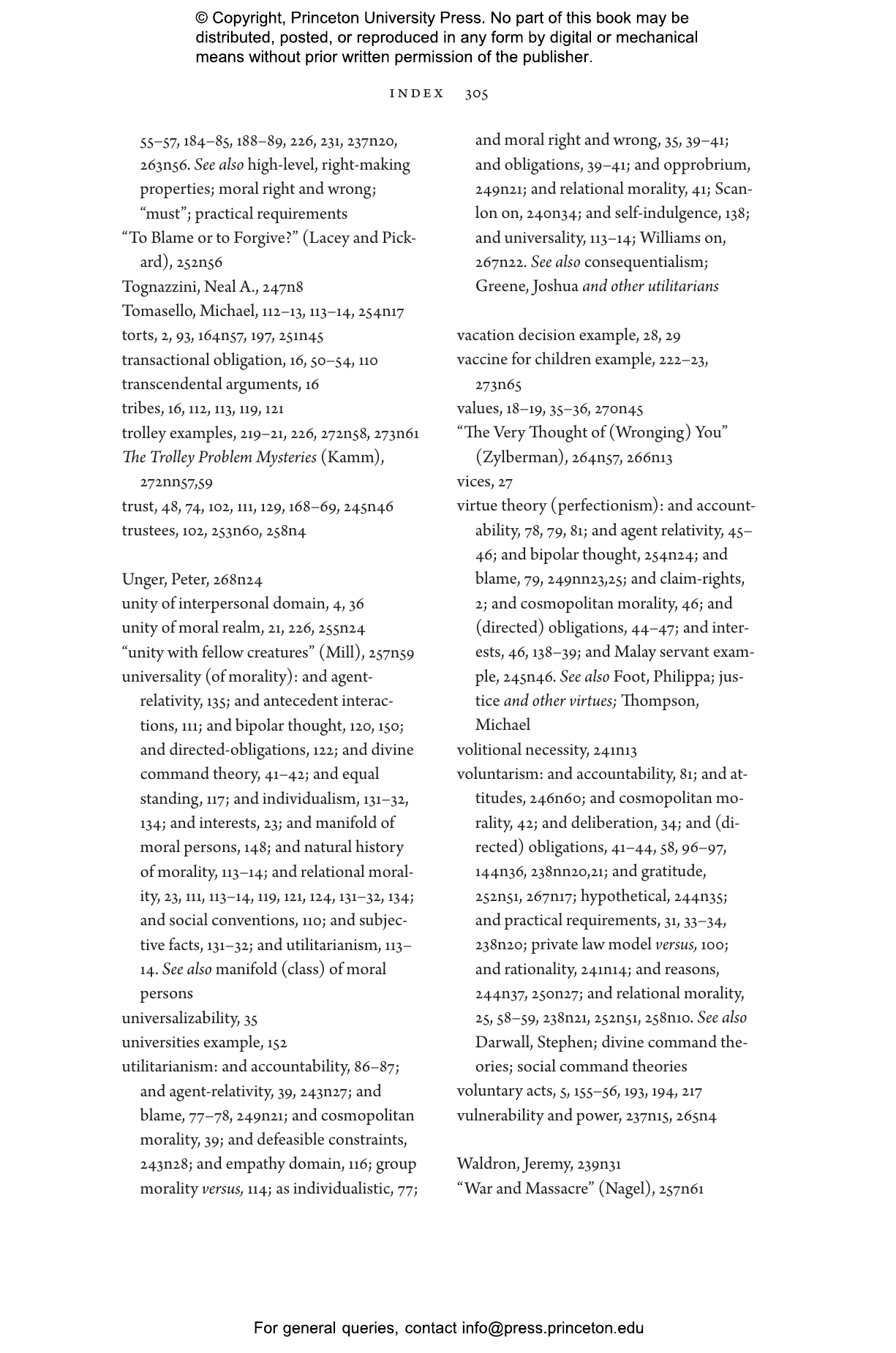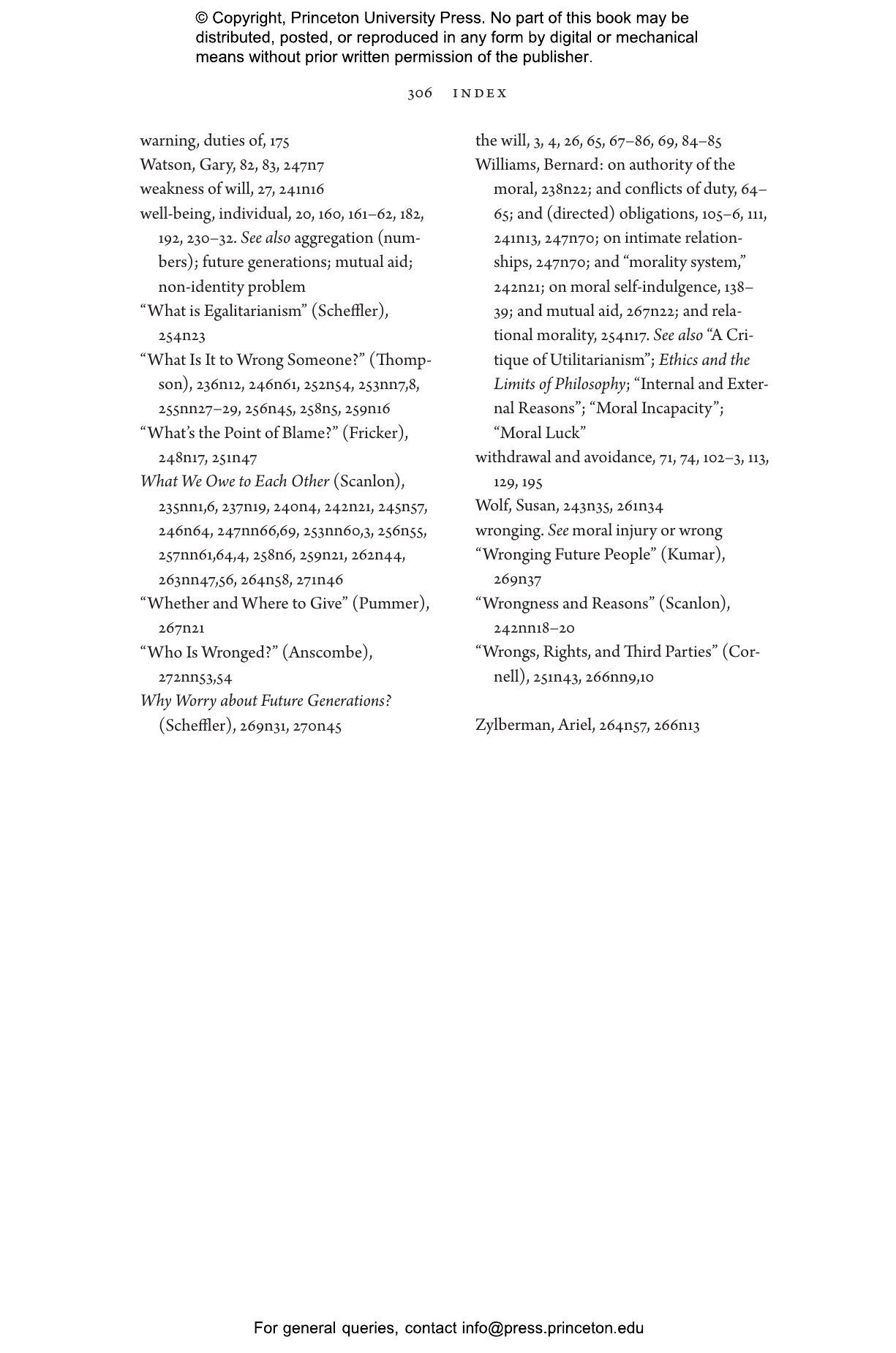The Moral Nexus
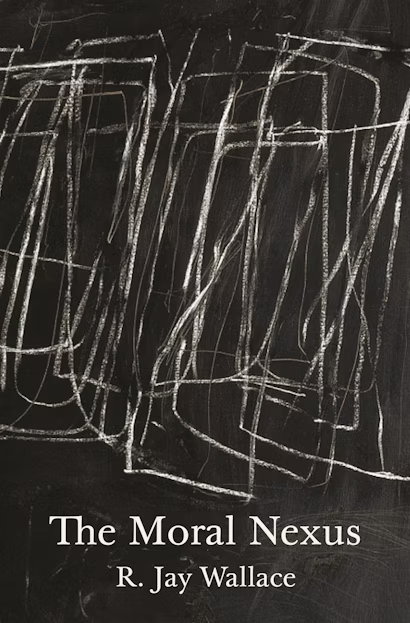

Hardcover
- Price:
- $49.95/£42.00
- ISBN:
- Published:
- Feb 26, 2019
- Copyright:
- 2019
- Pages:
- 328
- Size:
- 6.12 x 9.25 in.
- Main_subject:
- Philosophy
Paperback
ebook
The Moral Nexus develops and defends a new interpretation of morality—namely, as a set of requirements that connect agents normatively to other persons in a nexus of moral relations. According to this relational interpretation, moral demands are directed to other individuals, who have claims that the agent comply with these demands. Interpersonal morality, so conceived, is the domain of what we owe to each other, insofar as we are each persons with equal moral standing.
The book offers an interpretative argument for the relational approach. Specifically, it highlights neglected advantages of this way of understanding the moral domain; explores important theoretical and practical presuppositions of relational moral duties; and considers the normative implications of understanding morality in relational terms.
The book features a novel defense of the relational approach to morality, which emphasizes the special significance that moral requirements have, both for agents who are deliberating about what to do and for those who stand to be affected by their actions. The book argues that relational moral requirements can be understood to link us to all individuals whose interests render them vulnerable to our agency, regardless of whether they stand in any prior relationship to us. It also offers fresh accounts of some of the moral phenomena that have seemed to resist treatment in relational terms, showing that the relational interpretation is a viable framework for understanding our specific moral obligations to other people.
